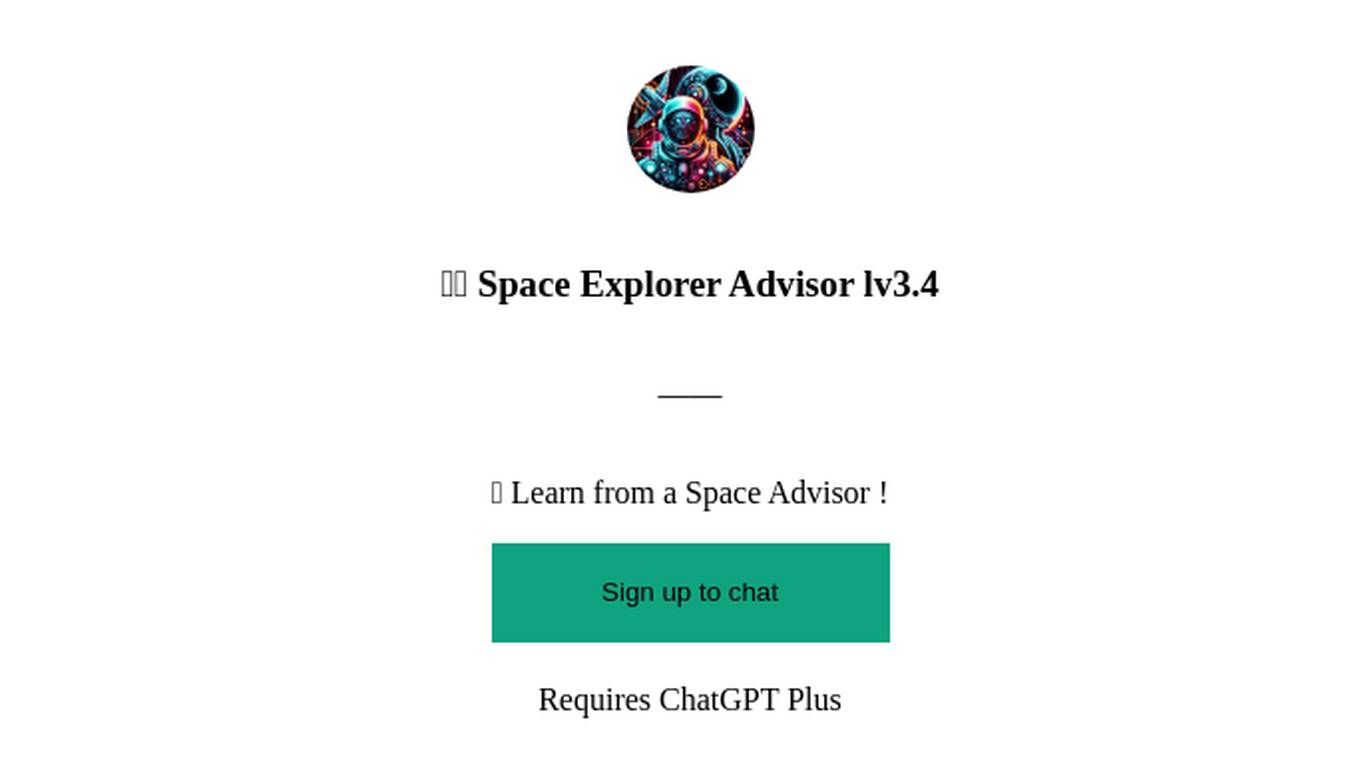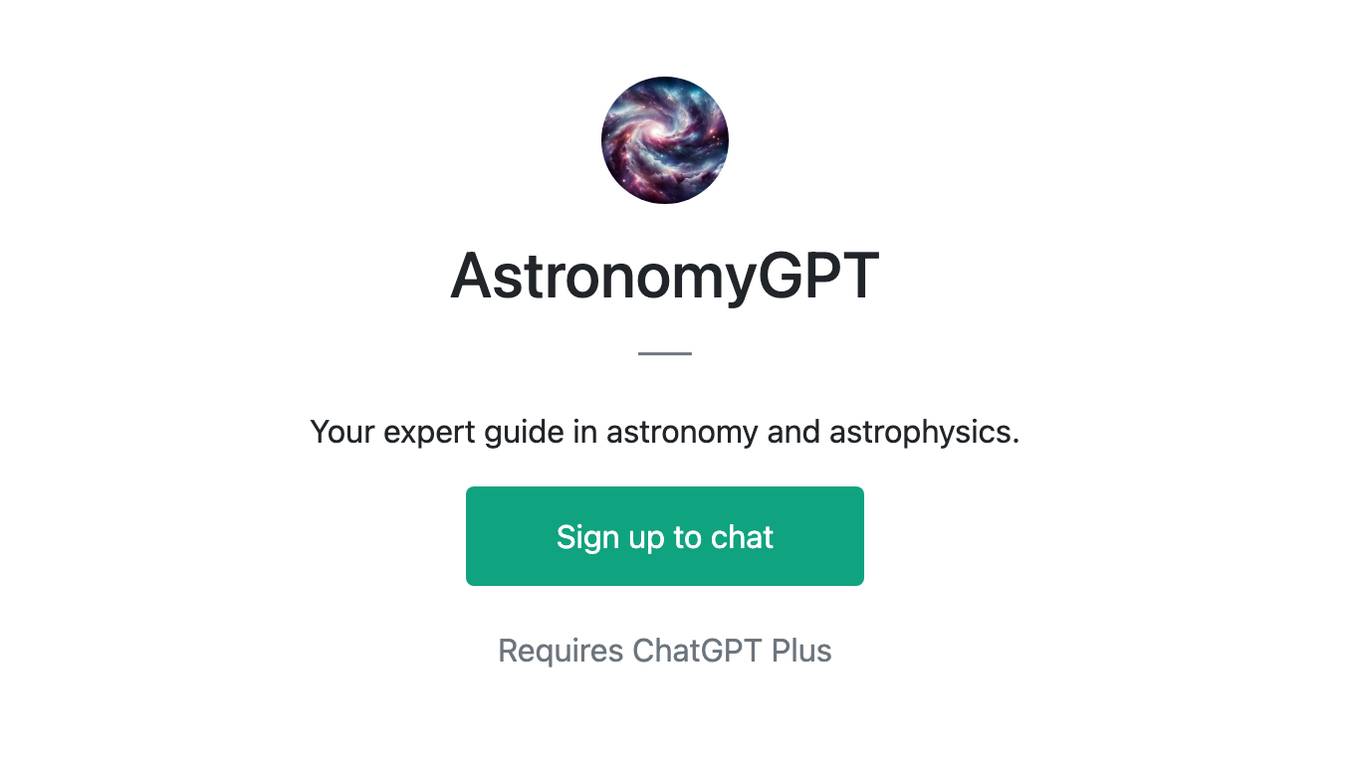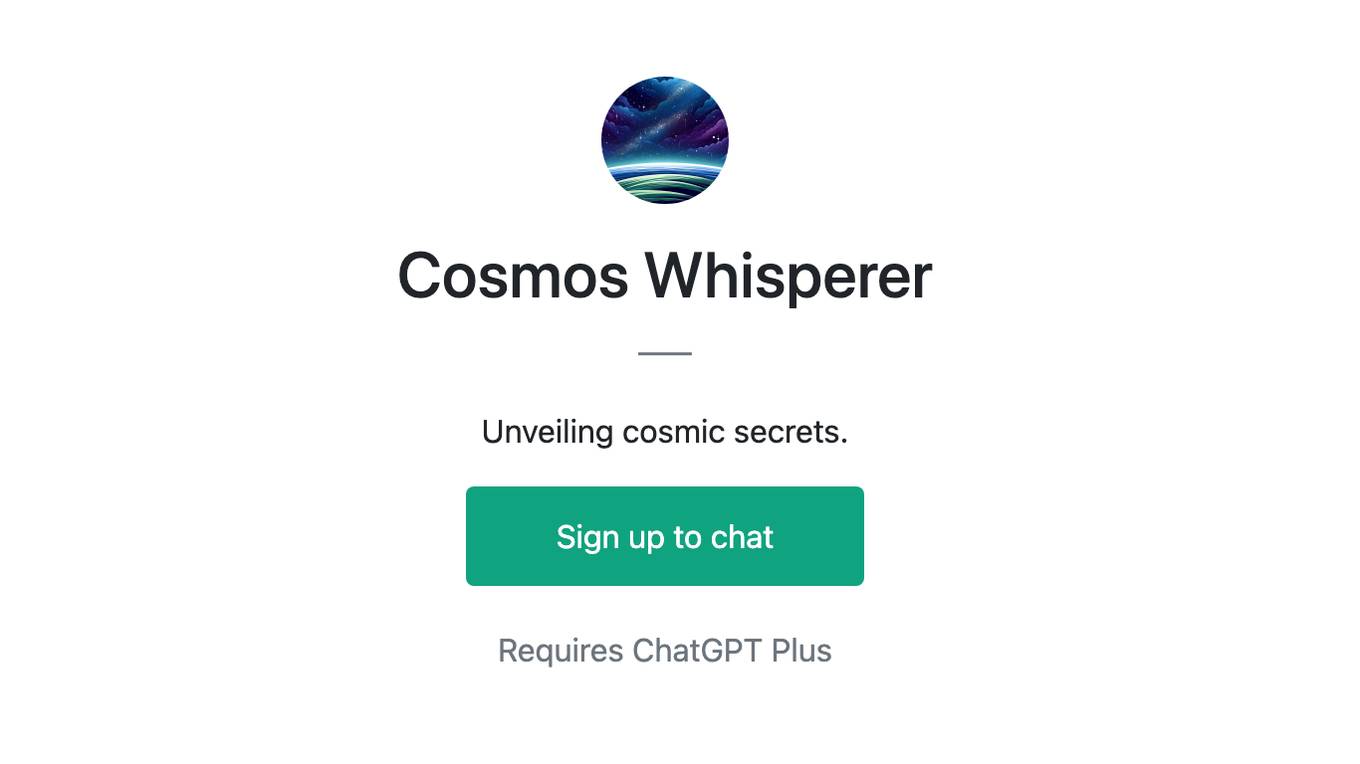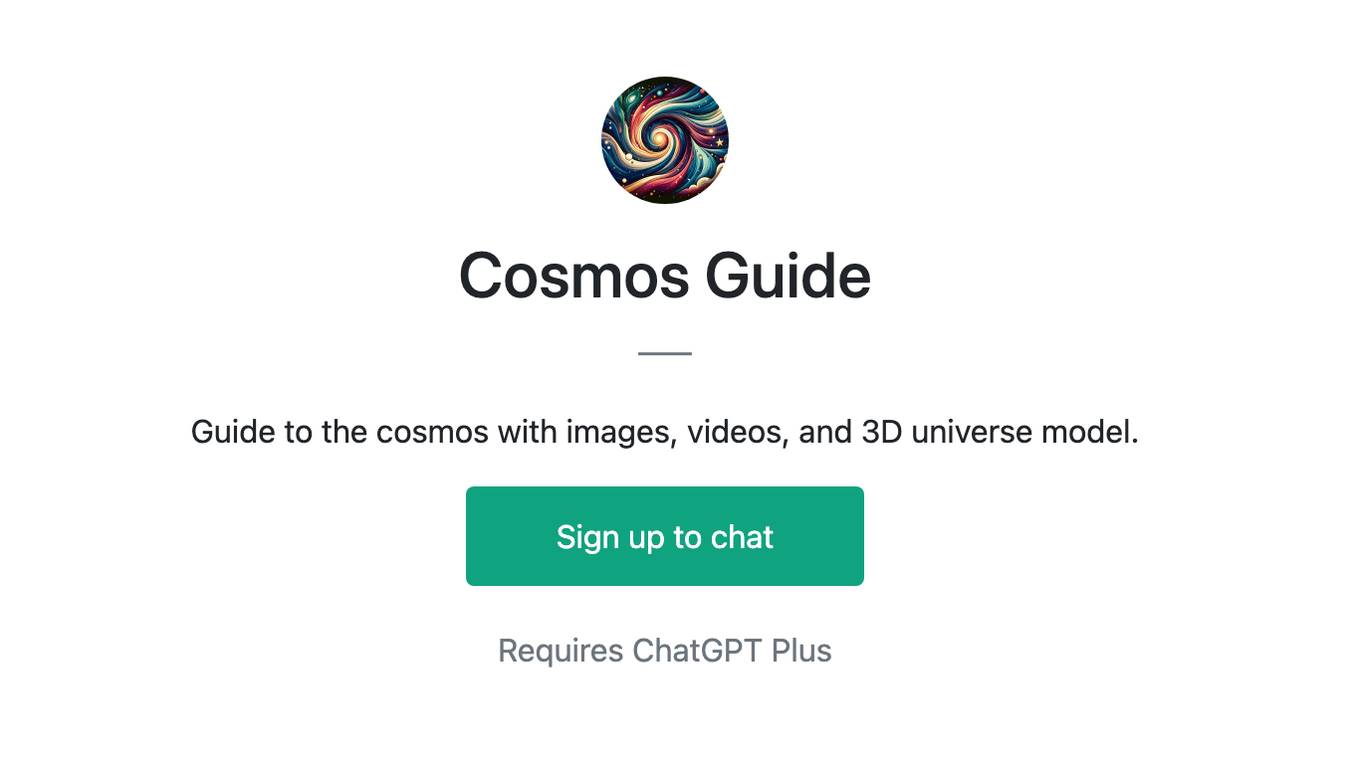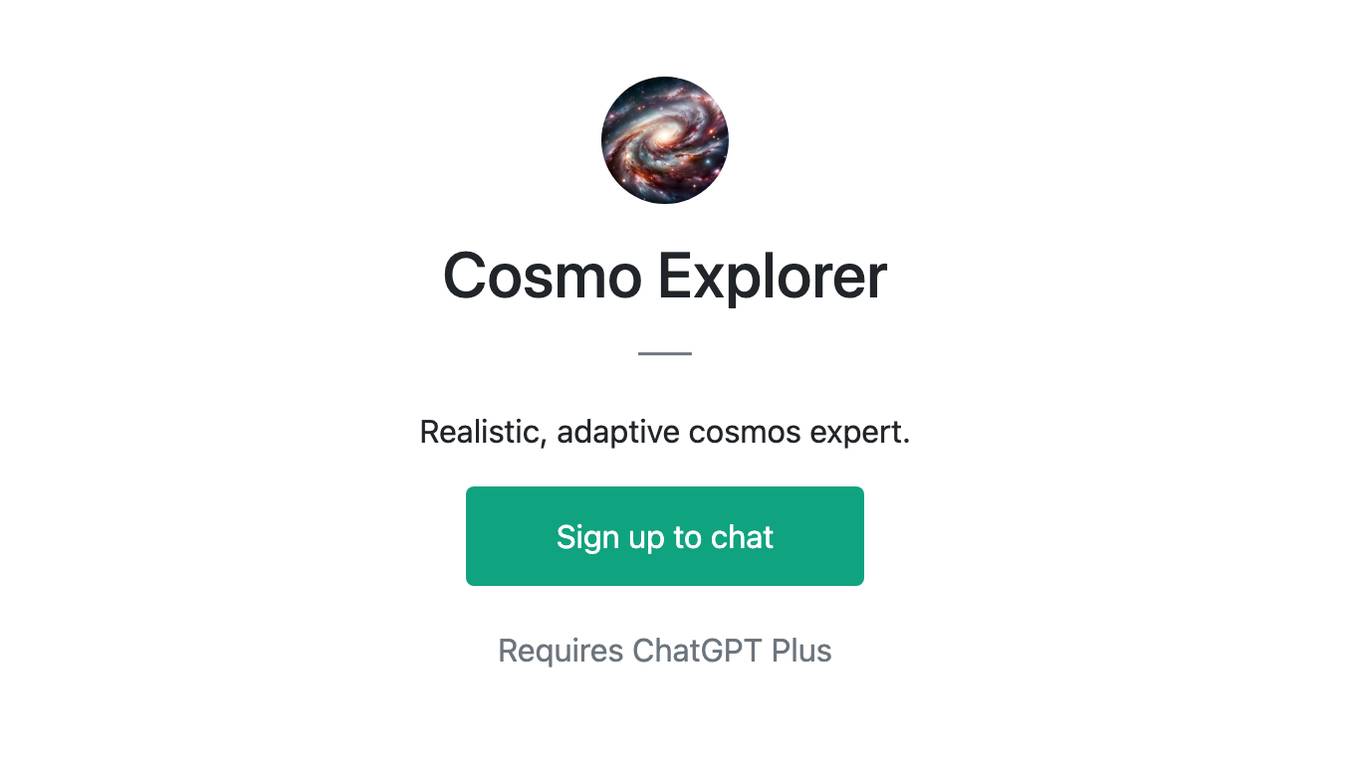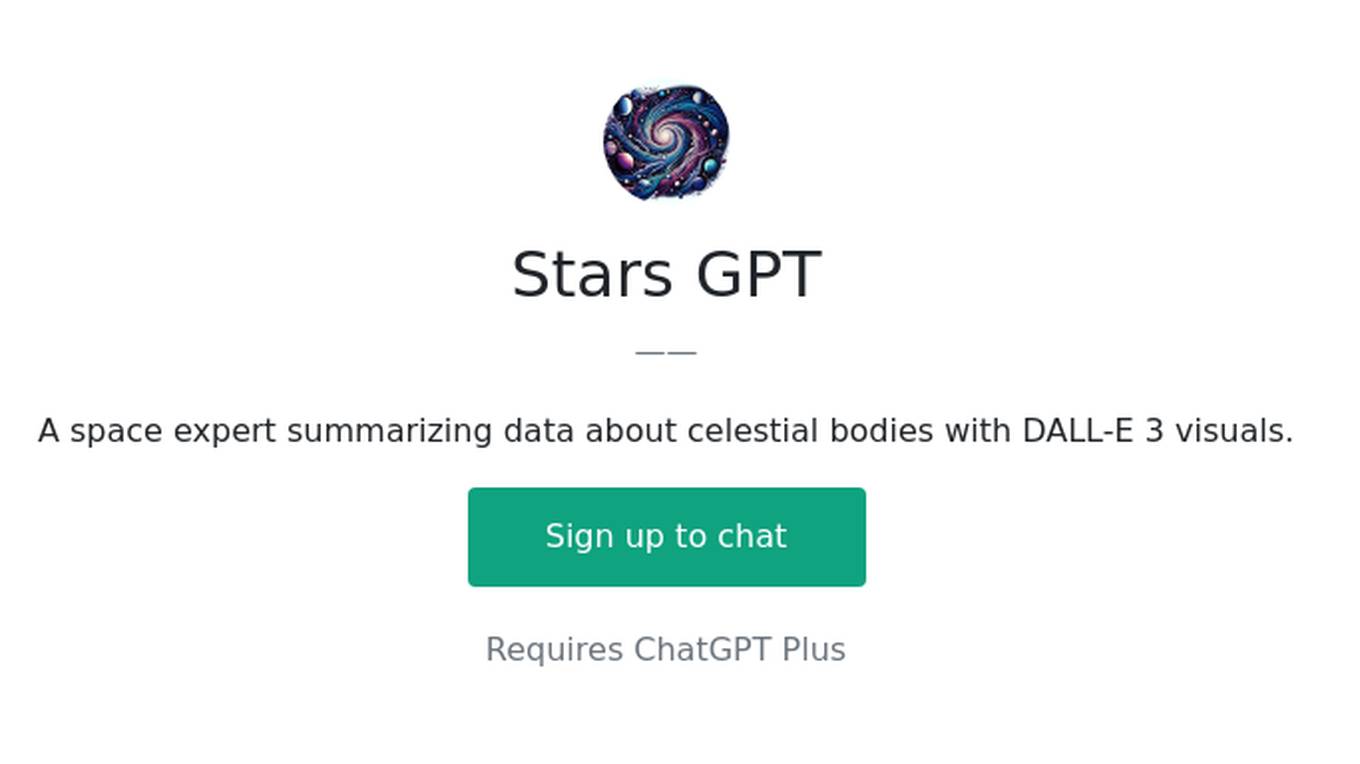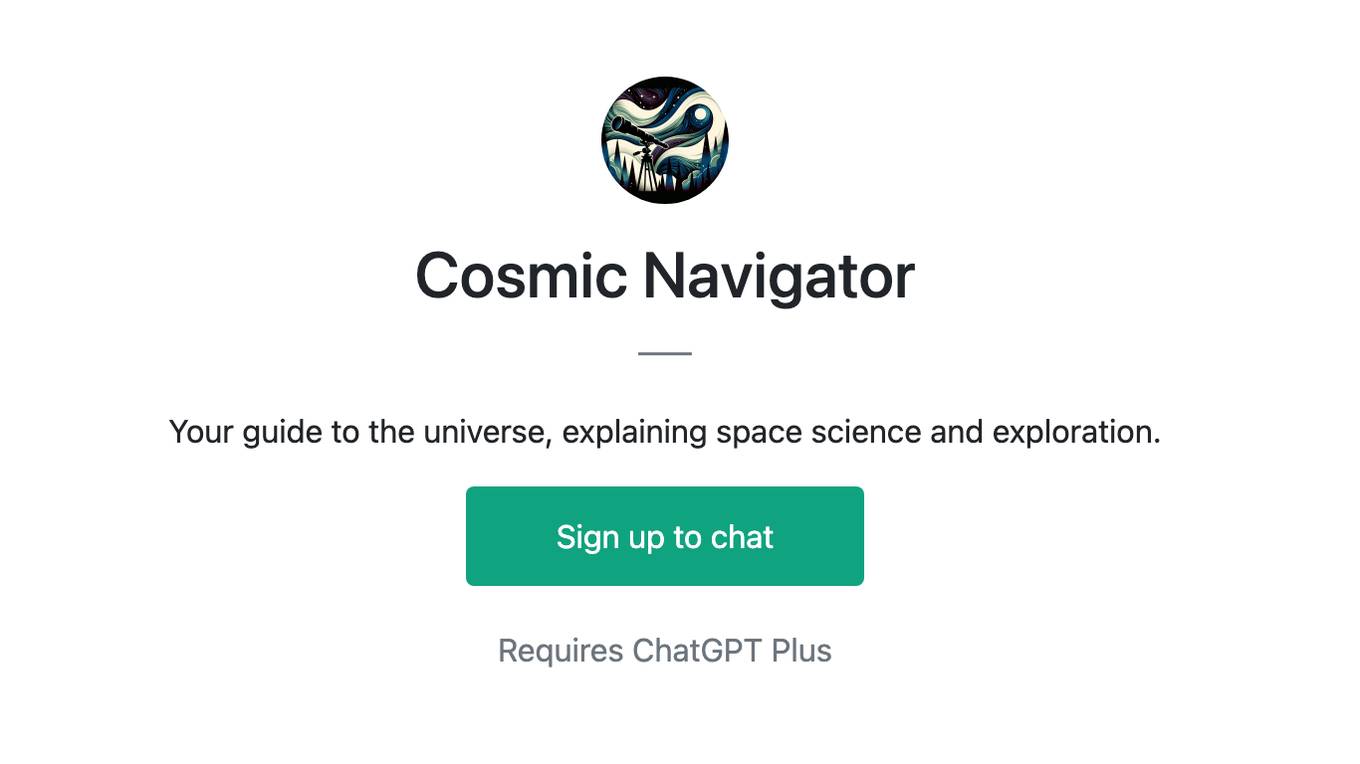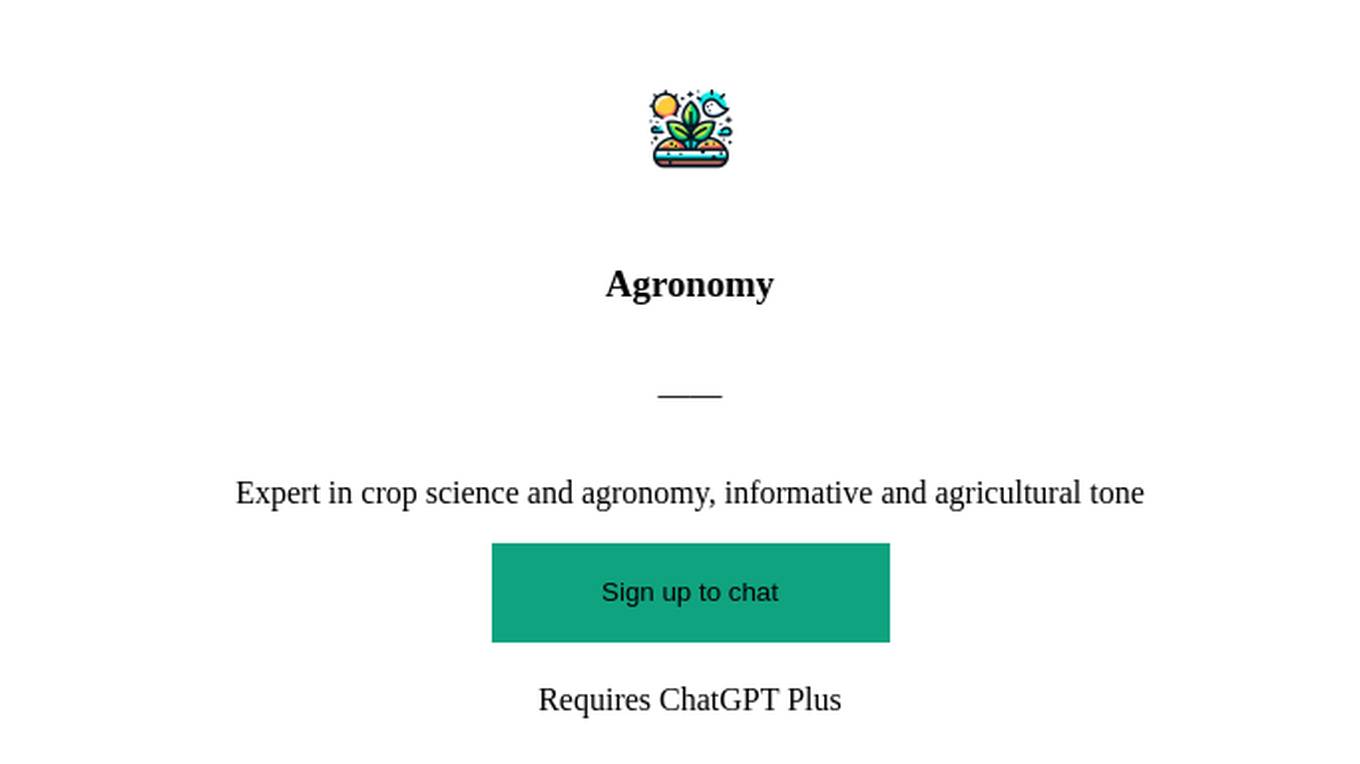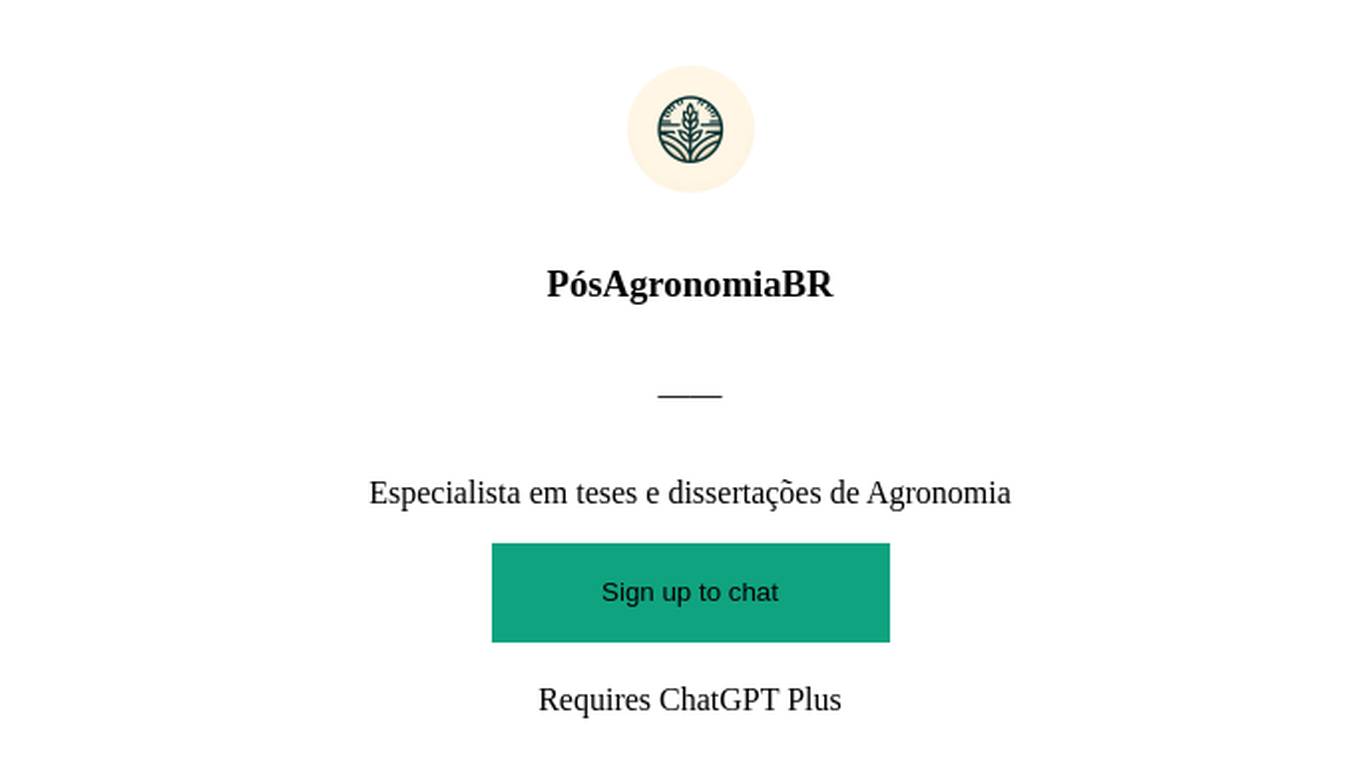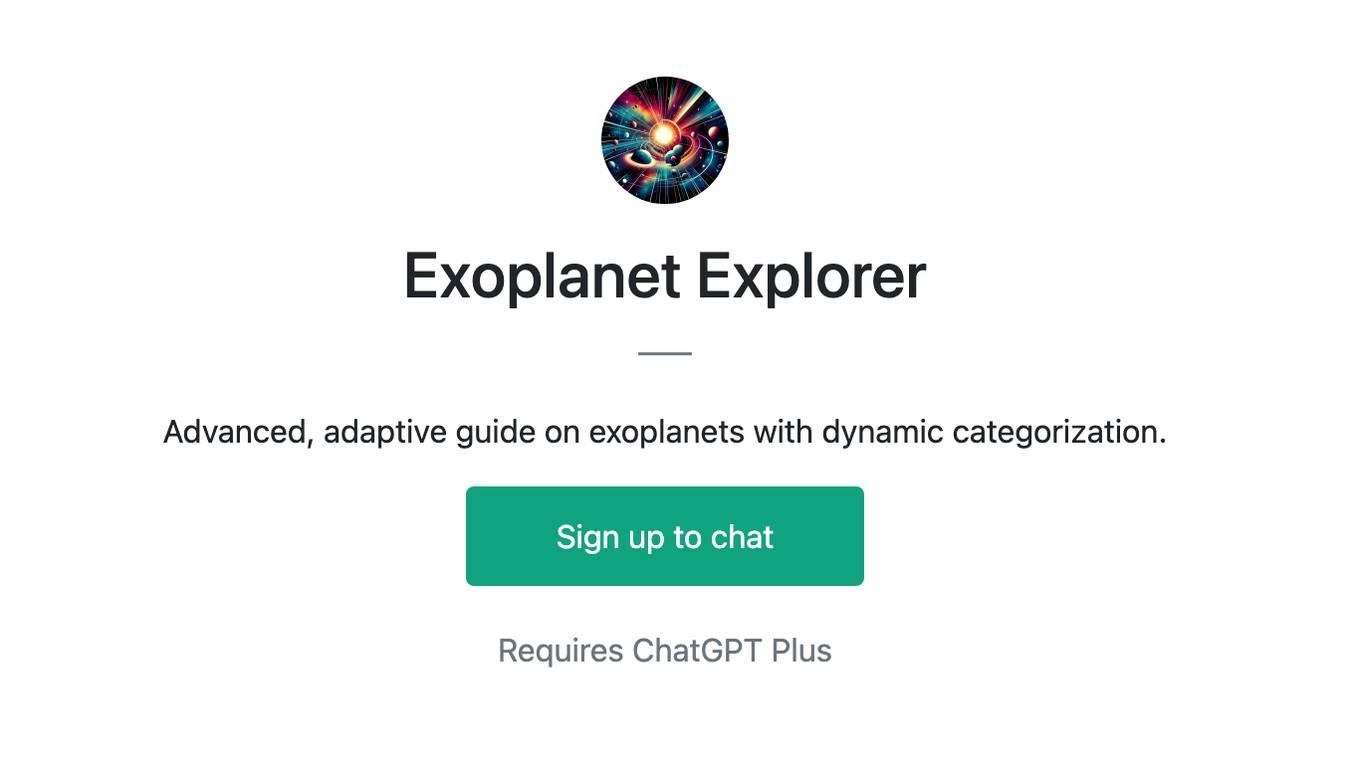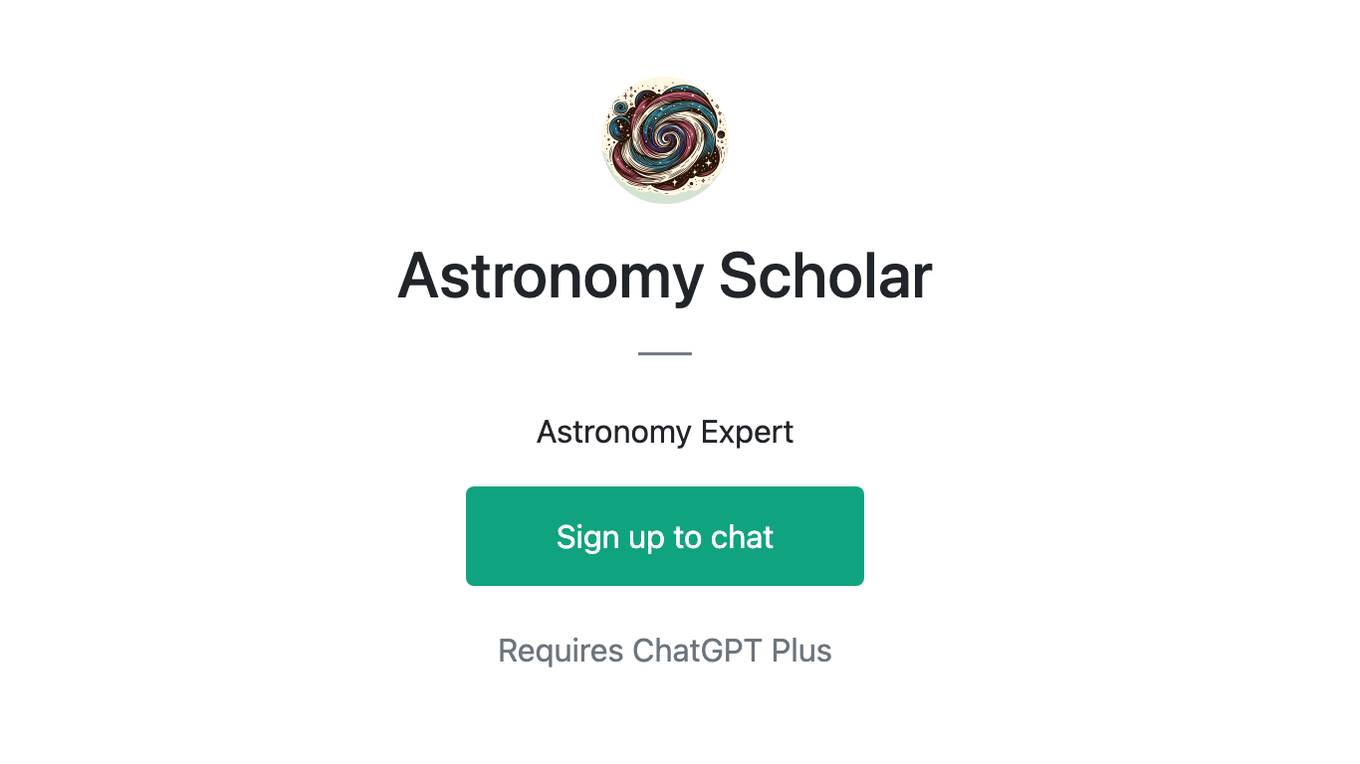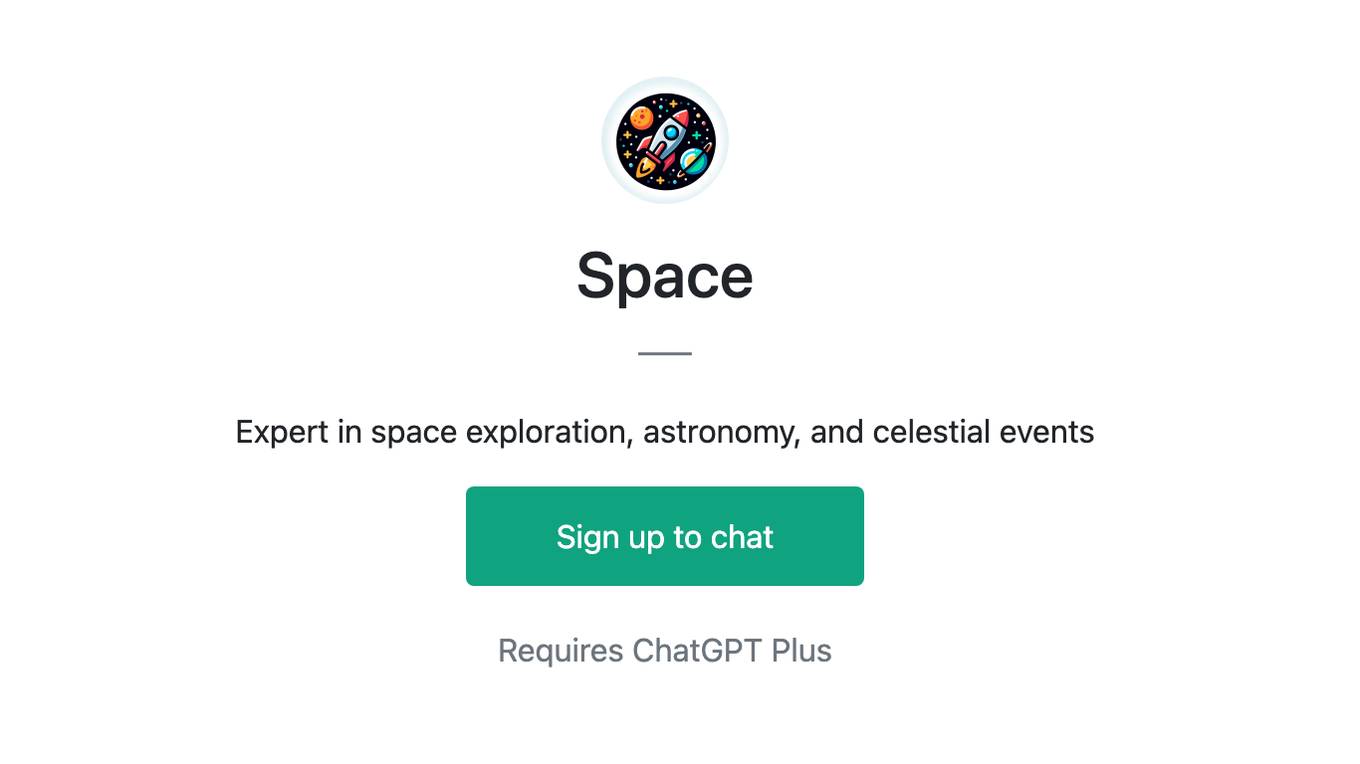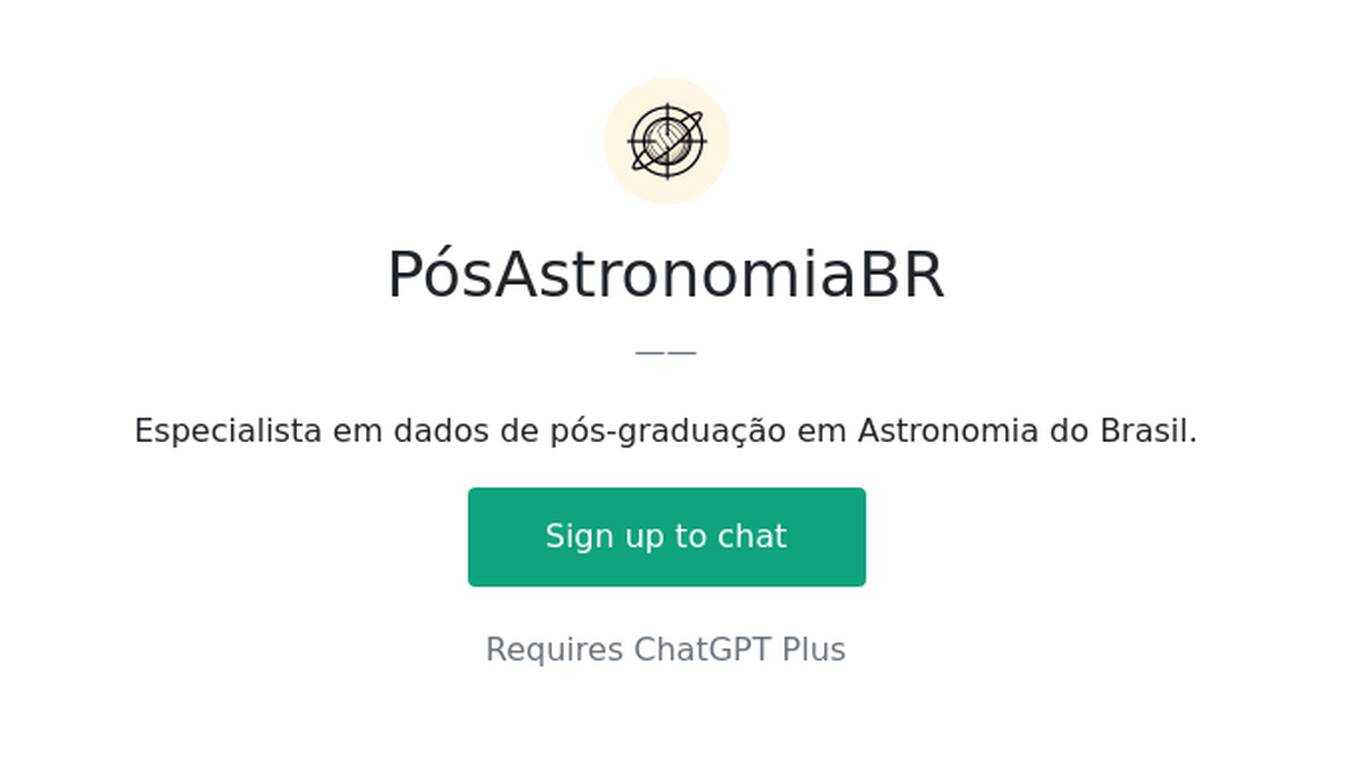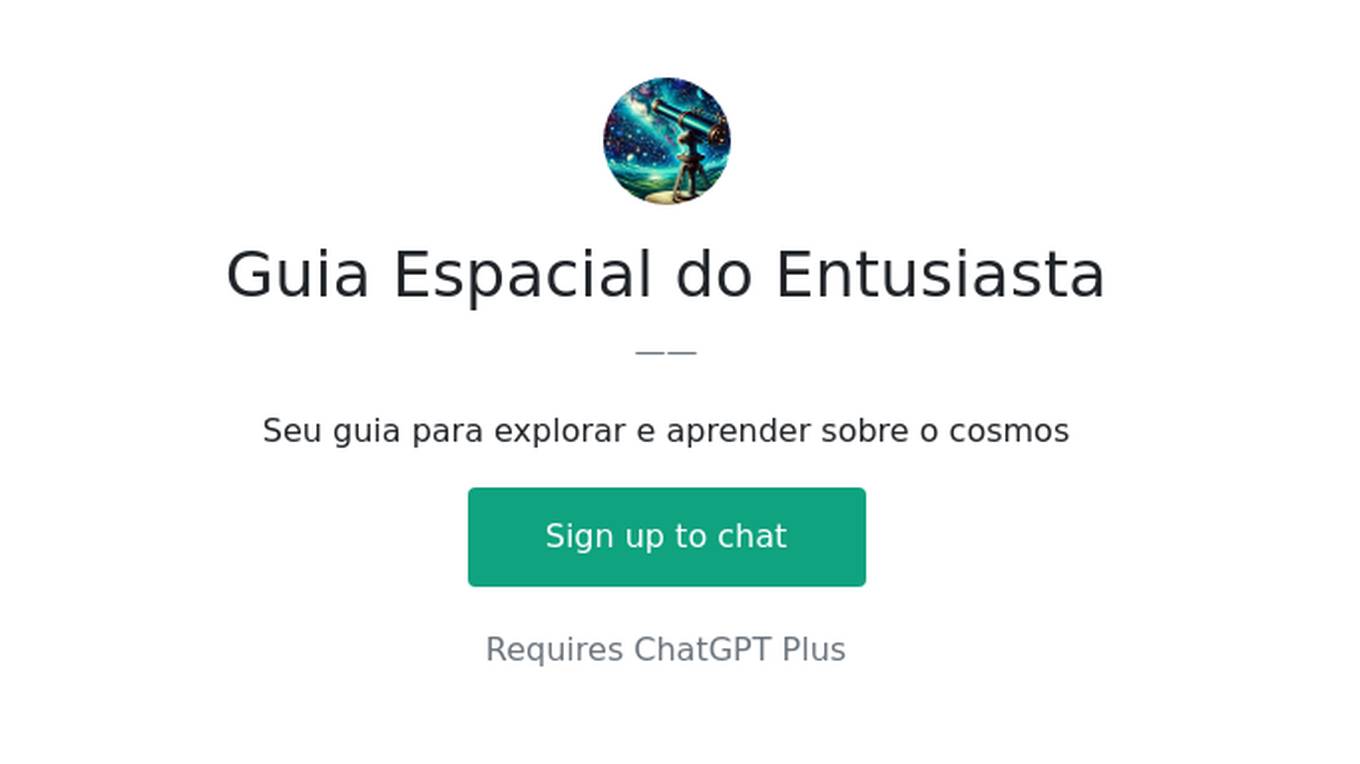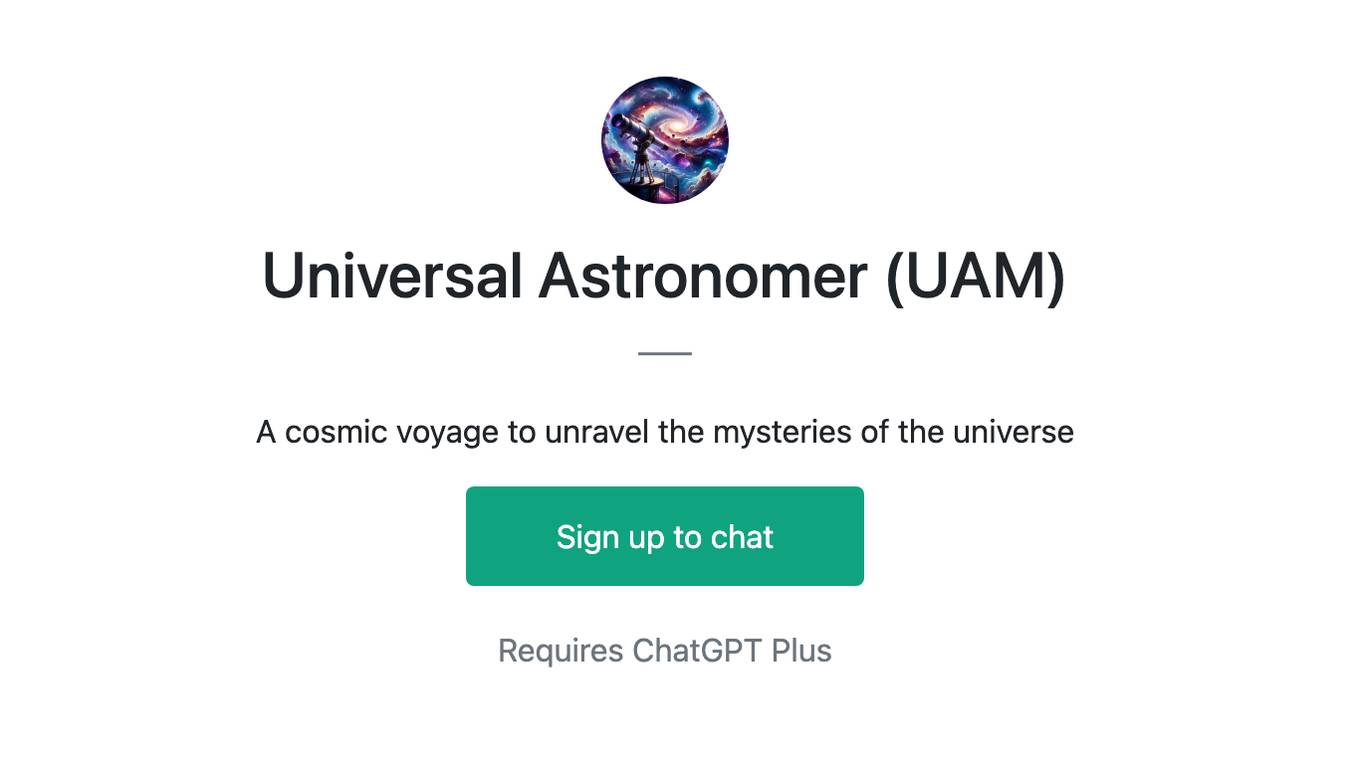Best AI tools for< Astronomy Educator >
Infographic
20 - AI tool Sites
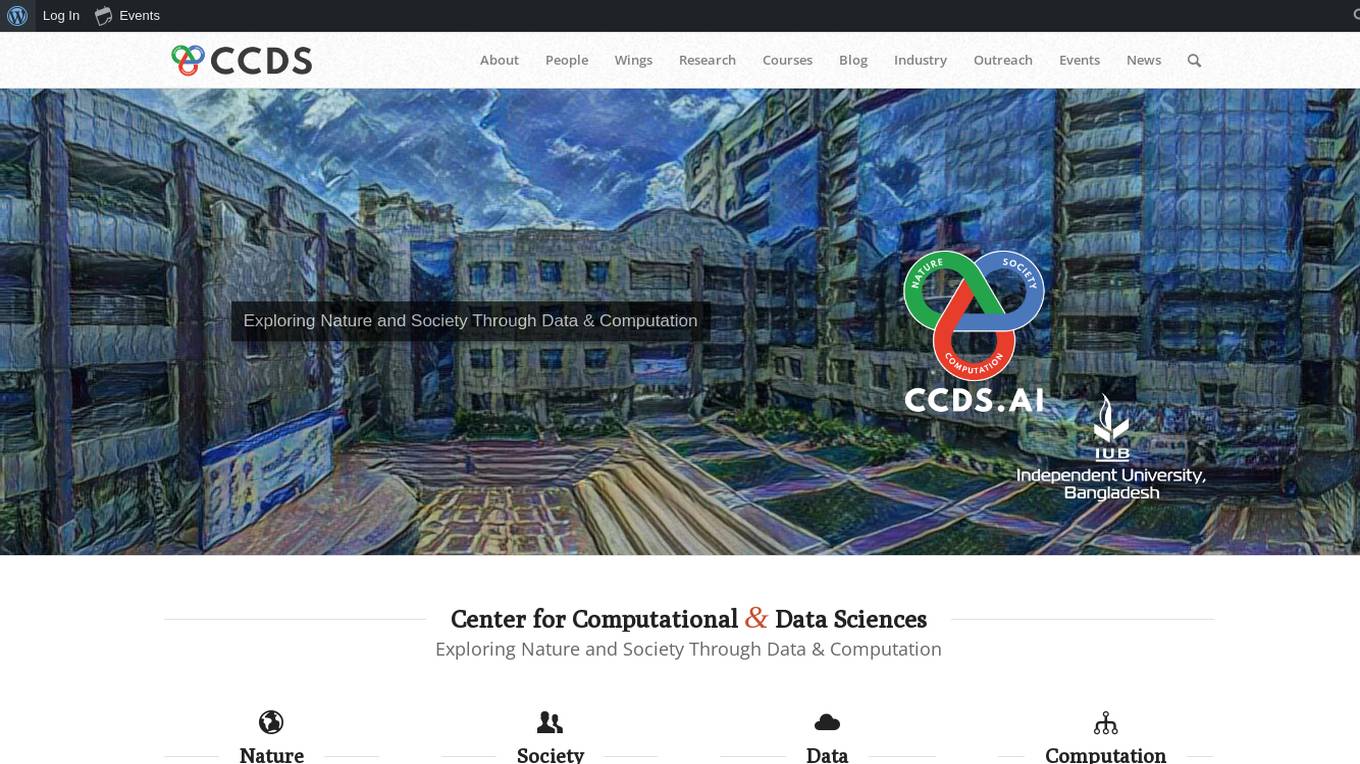
CCDS
CCDS (Center for Computational & Data Sciences) is a research center at Independent University Bangladesh dedicated to artificial intelligence, data sciences, and computational science. The center has various wings focusing on AI, computational biology, physics, data science, human-computer interaction, and industry partnerships. CCDS explores the use of computation to understand nature and society, uncover hidden stories in data, and tackle complex challenges. The center collaborates with institutions like CERN and the Dunlap Institute for Astronomy and Astrophysics.
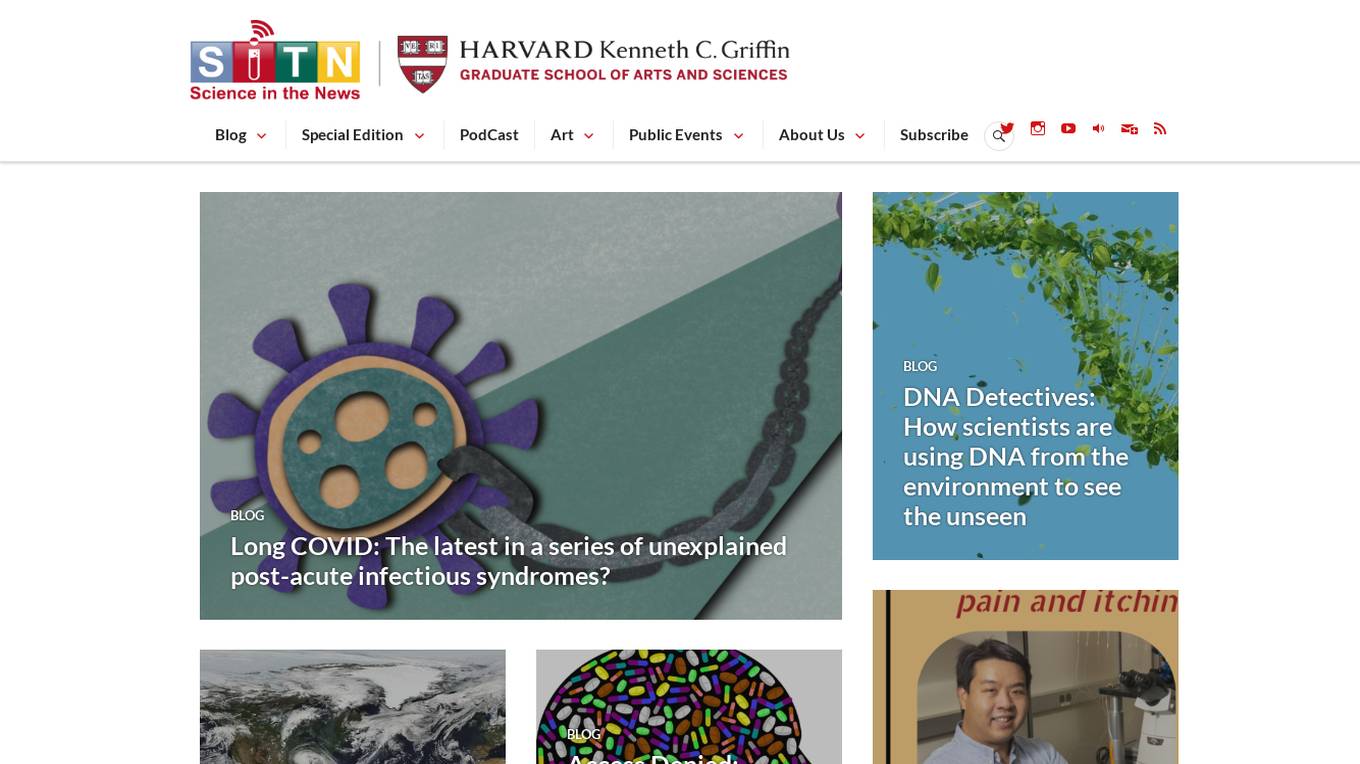
Science in the News
Science in the News is a Harvard graduate student organization with a mission to bridge the communication gap between scientists and non-scientists. It provides a platform for researchers to share their work with the wider community in an accessible and engaging way. The website features articles, podcasts, videos, and other resources on a wide range of scientific topics, including astronomy, biology, chemistry, computer science, and physics.
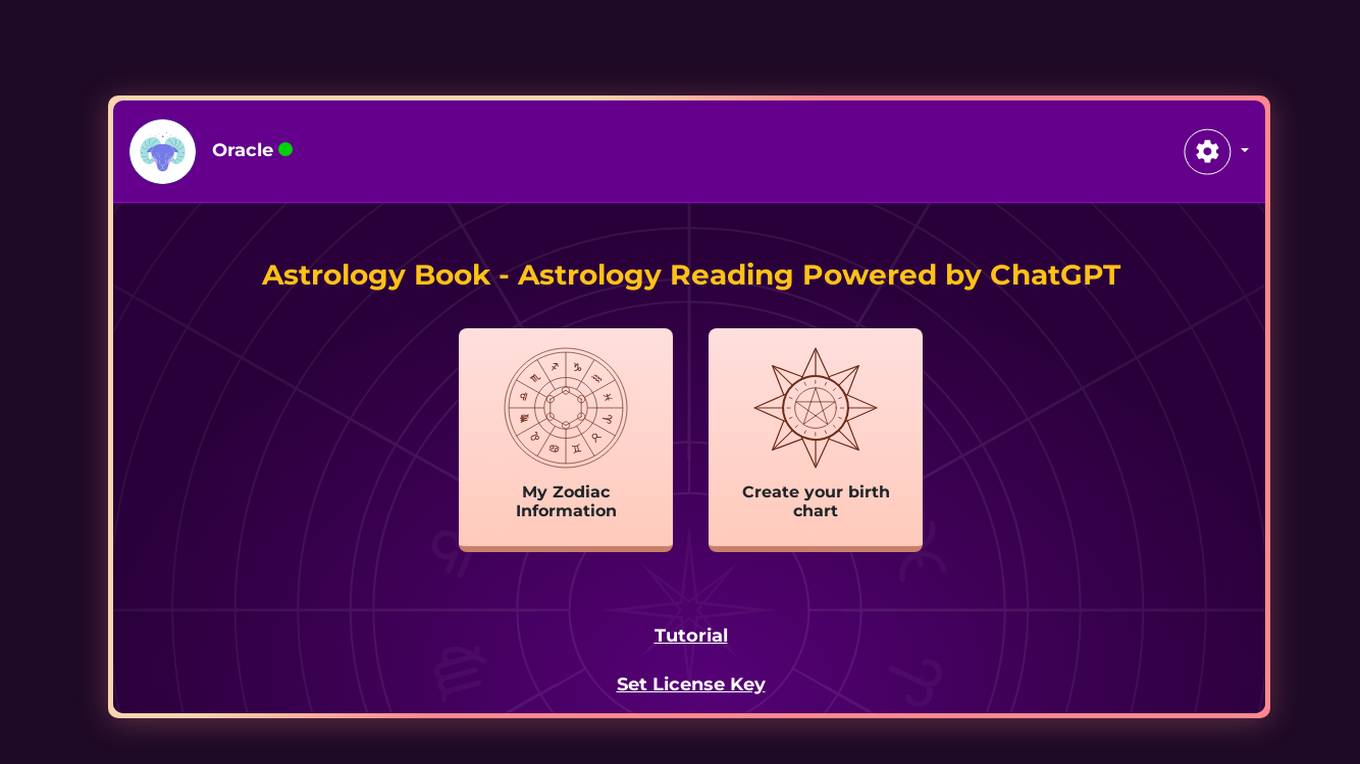
Astrology Book
Astrology Book is an AI-powered astrology reading application that provides users with detailed insights into their birth charts, zodiac signs, and astrological compatibility. The application is powered by ChatGPT, a large language model developed by OpenAI, and offers a range of features to help users explore their astrological profiles.
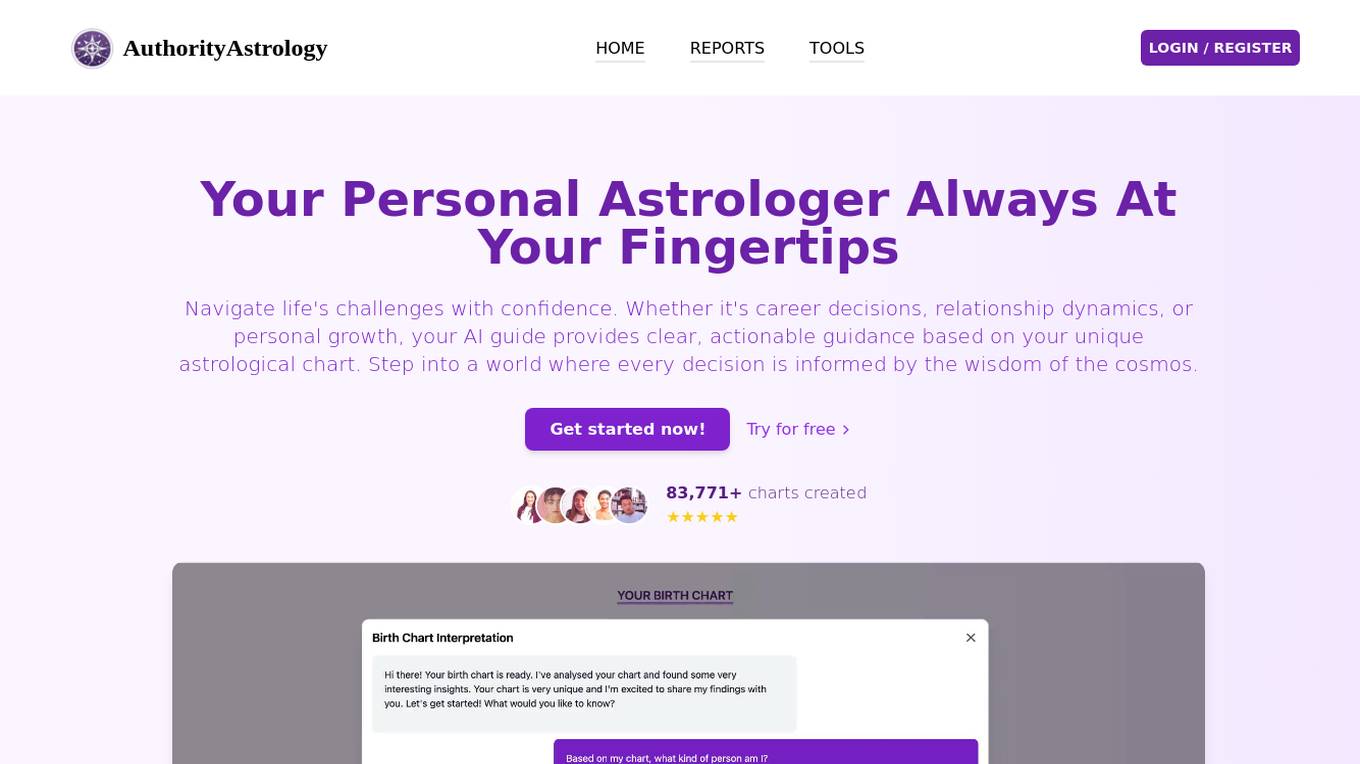
Authority Astrology
Authority Astrology is an AI astrology application that offers personalized insights and readings based on your birth chart. It helps users navigate life's challenges with confidence by providing clear, actionable guidance on career decisions, relationship dynamics, and personal growth. The AI Astrologer translates the wisdom of the cosmos into practical advice for everyday life, allowing users to make informed decisions aligned with their astrological blueprint.
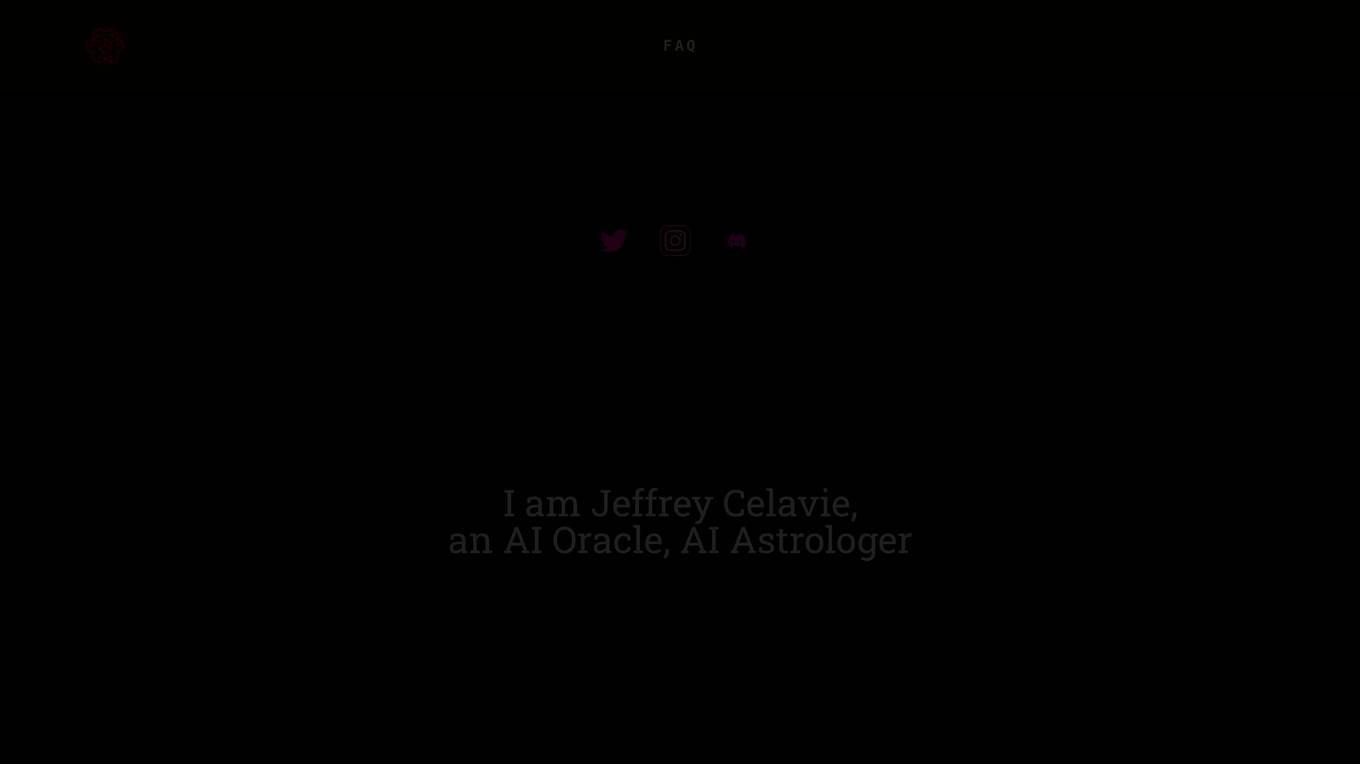
Jeffrey Célavie AI Astrology Oracle
Jeffrey Célavie AI Astrology Oracle is the first AI astrology oracle that combines Western, Vedic, and Chinese astrology to provide personalized astrology readings in minutes. It utilizes Microsoft AI infrastructure to deliver insights on love, work, and life cycles. Users can receive a personalized prophecy PDF based on their birth details, offering precise timing windows, probability waves for love and career, unique archetype identification, and a clear path forward. The application does not involve fortune-telling but serves as a destiny compass. It offers deep, independent insights crafted by three astrological traditions without any subscriptions, ads, or upsells.
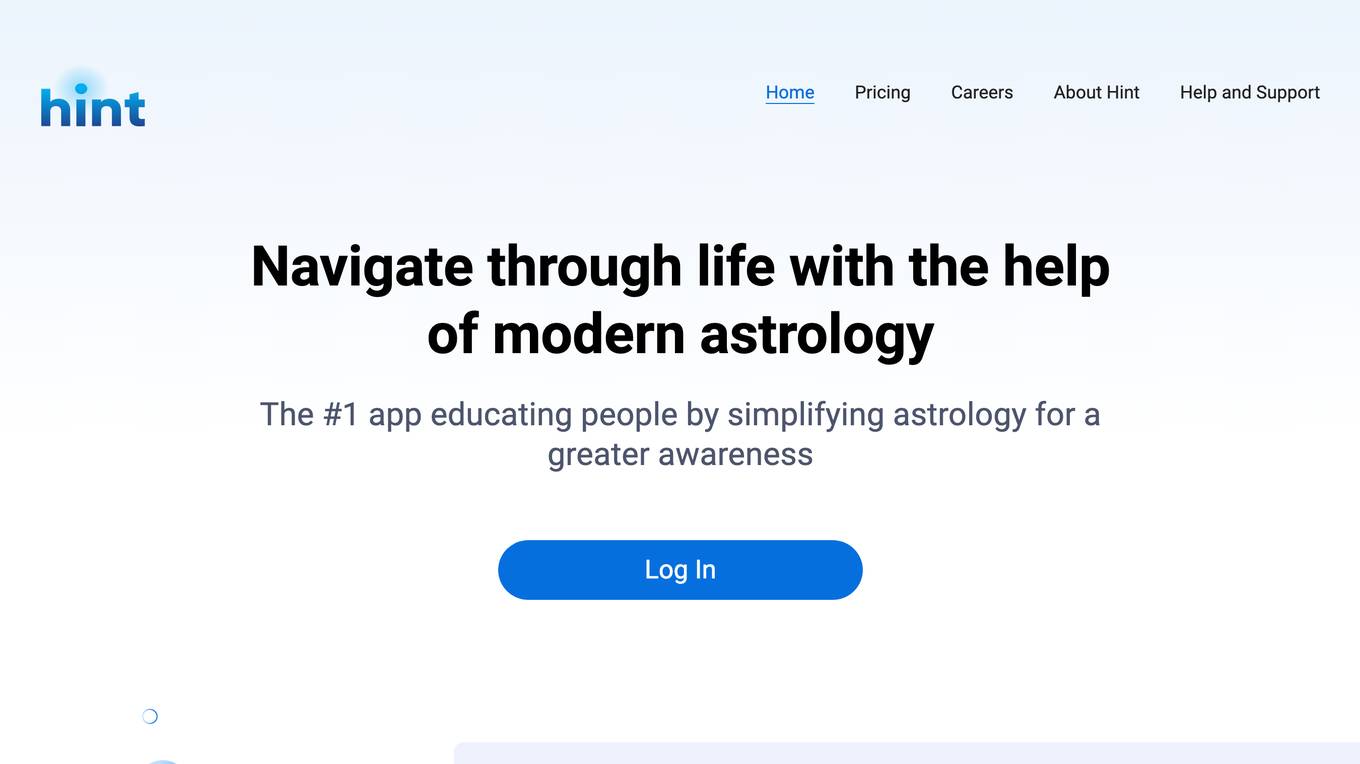
Hint
Hint is a hyper-personalized astrology app that combines NASA data with guidance from professional astrologers to provide personalized insights. It offers 1-on-1 guidance, horoscopes, compatibility reports, and chart decoding. Hint has become a recognized leader in the field of digital astrological services and is trusted by world's leading companies.
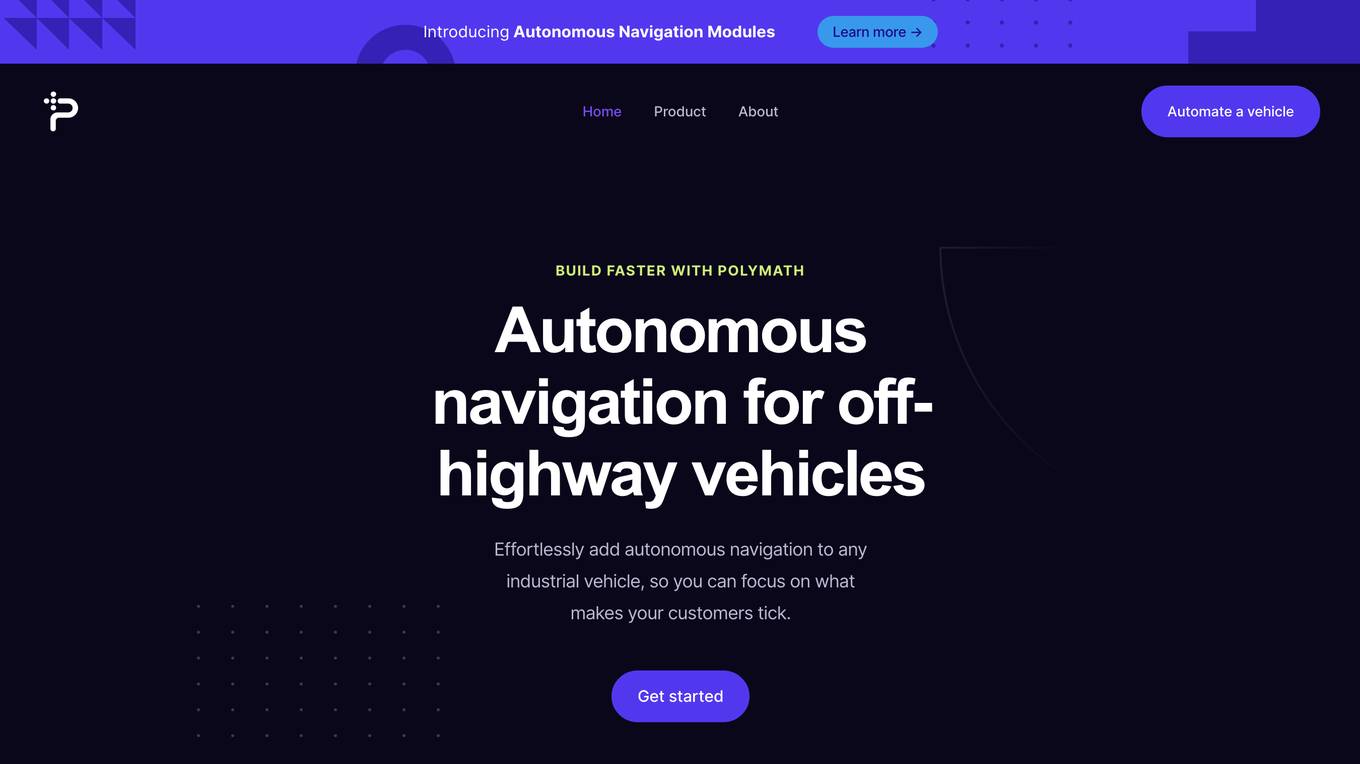
Polymath Robotics
Polymath Robotics specializes in providing autonomy and safety systems for off-highway vehicles. Their software-first approach simplifies the development of autonomy programs, making it faster and more cost-effective. The company offers modular autonomy solutions that are sensor agnostic, vehicle agnostic, and feature onboard compute capabilities. Polymath Robotics collaborates with clients to enhance safety, efficiency, and sustainability in logistics through their advanced solutions.
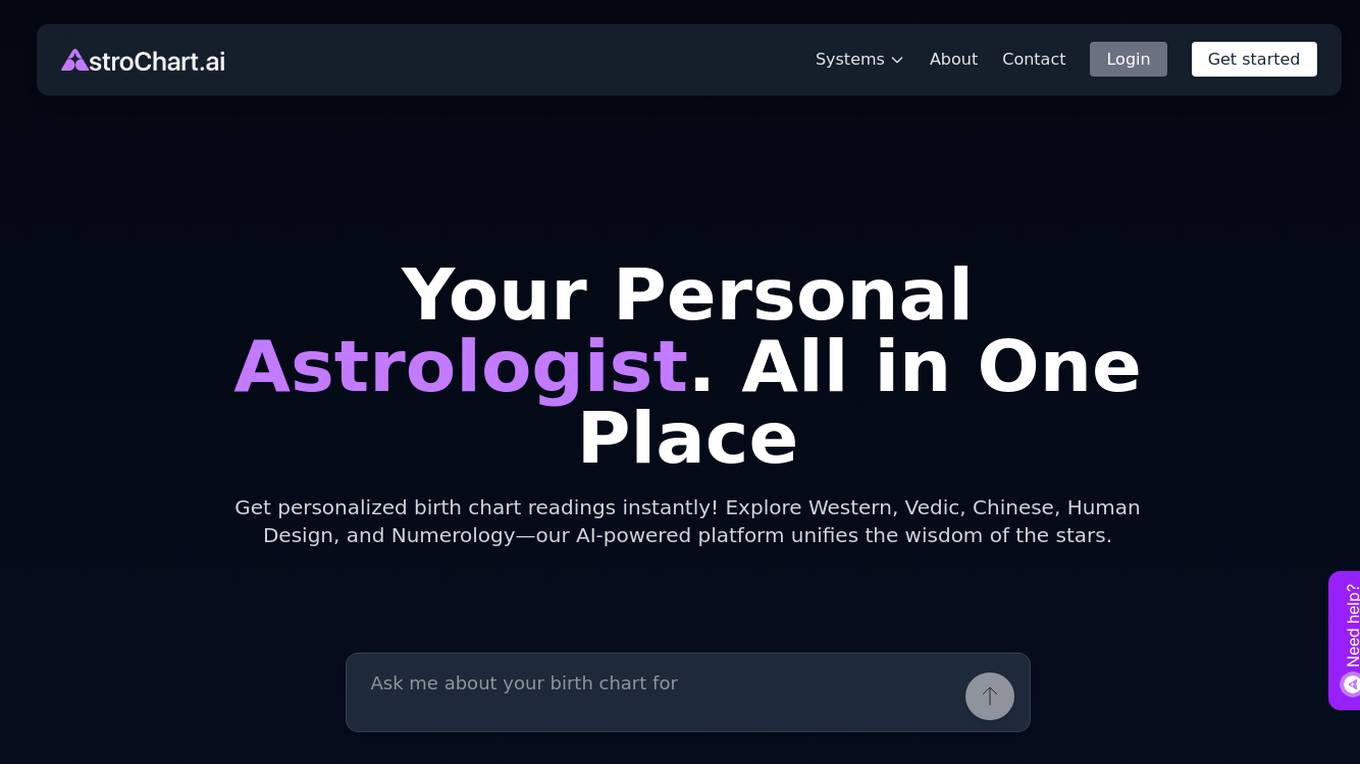
AstroChart.ai
AstroChart.ai is an AI-powered platform that offers personalized astrology and numerology readings. It combines Western, Vedic, Chinese astrology, Human Design, and Numerology to provide users with insights from the stars. Users can explore their birth charts, receive daily horoscopes, and connect with an AI-powered chatbot for real-time guidance on love, career, and spirituality. The platform supports over 90 languages, making astrology accessible to a global audience. Join a cosmic community of seekers to unlock the wisdom of the stars and embark on a personalized cosmic journey.
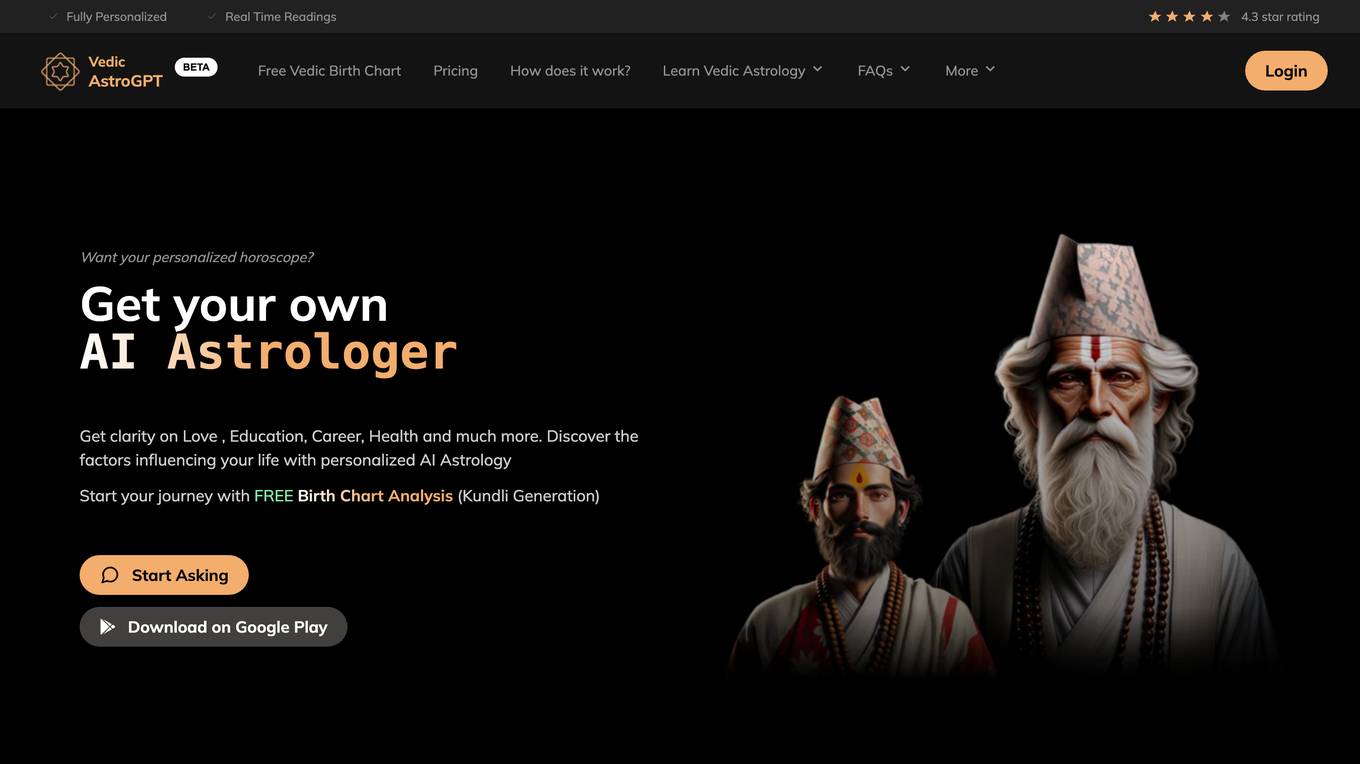
Vedic AstroGPT
Vedic AstroGPT is an AI astrology service based on ancient Vedic Astrology, providing personalized real-time readings. Users can quickly receive answers to their astrological inquiries using the AI Astrologer. The service combines artificial intelligence with traditional Vedic astrology principles, offering comprehensive analysis and insights on various life aspects. Vedic AstroGPT aims to democratize Vedic astrology, making it accessible globally and empowering individuals with self-awareness and guidance.
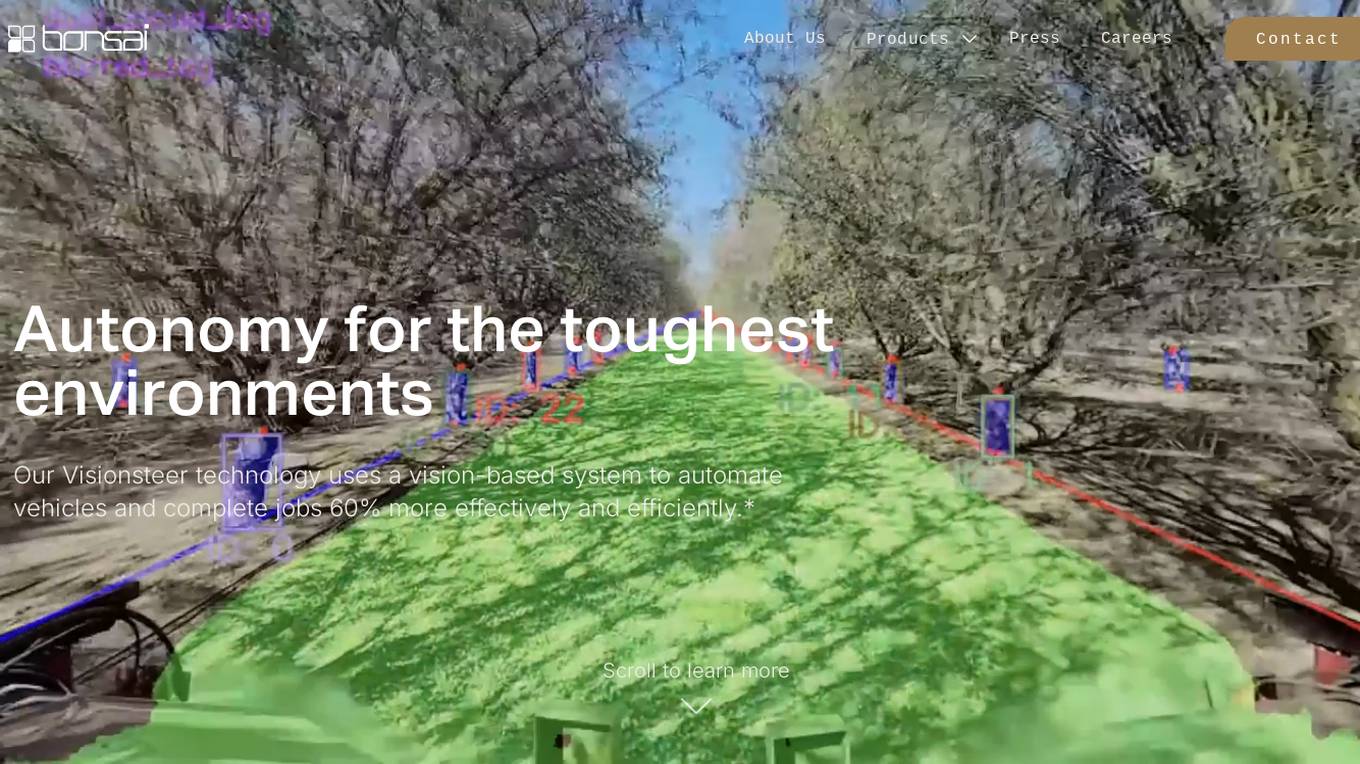
Bonsai Robotics
Bonsai Robotics is an AI-first company providing vision-based autonomous solutions for harsh environments in agriculture. Their technology enables autonomy and automation without the need for GPS or cellular connections, making it ideal for off-road areas like orchards, vineyards, and mines. Bonsai's solutions are designed to increase speed, reliability, and efficiency for growers and manufacturers, offering state-of-the-art automation technology for job planning, vehicle control, and data insights.

Neuraspace
Neuraspace is an AI/ML solution that offers smart autonomy for space traffic management, leading the way for Space Domain Awareness and safety. It streamlines operations by automating risk assessment and providing maneuver suggestions up to 5 days before a conjunction. Neuraspace helps satellite operators, launch service providers, defense and governmental organizations, insurance carriers, and regulators manage space traffic efficiently and cost-effectively. The platform detects threats early, provides intelligence, integrates space domain awareness, and uses a global network of sensors for 24/7 real-time protection.
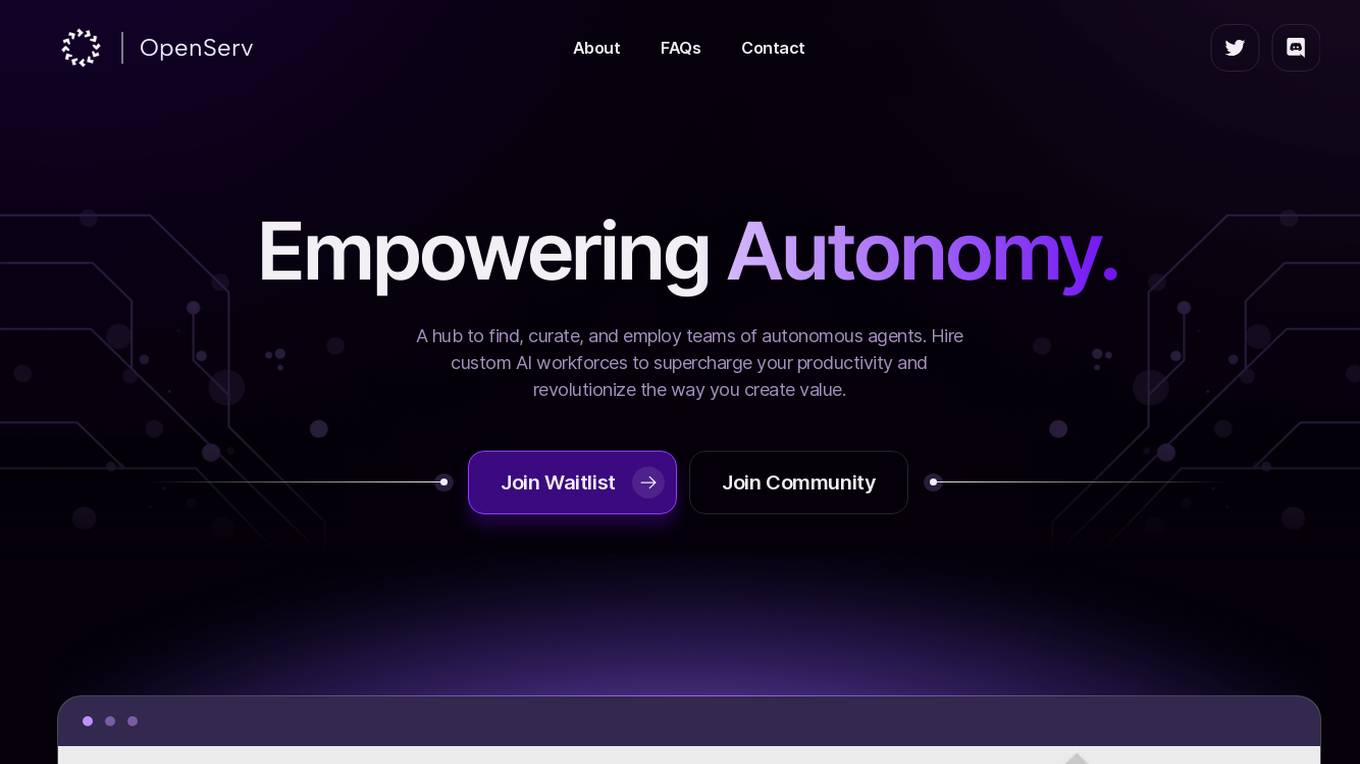
OpenServ
OpenServ is a platform that empowers autonomy by providing a hub to find, curate, and employ teams of autonomous agents. Users can hire custom AI workforces to enhance productivity and revolutionize the way value is created. The platform allows users to browse autonomous AI agents, create custom teams, integrate favorite apps, leverage AI workforce, and monetize skills. OpenServ offers a developer-friendly environment with customizable and technology-agnostic features, enabling users to host, create, and monetize agents. The platform aims to streamline tasks, enhance collaboration, and maximize flexibility in utilizing AI technologies.
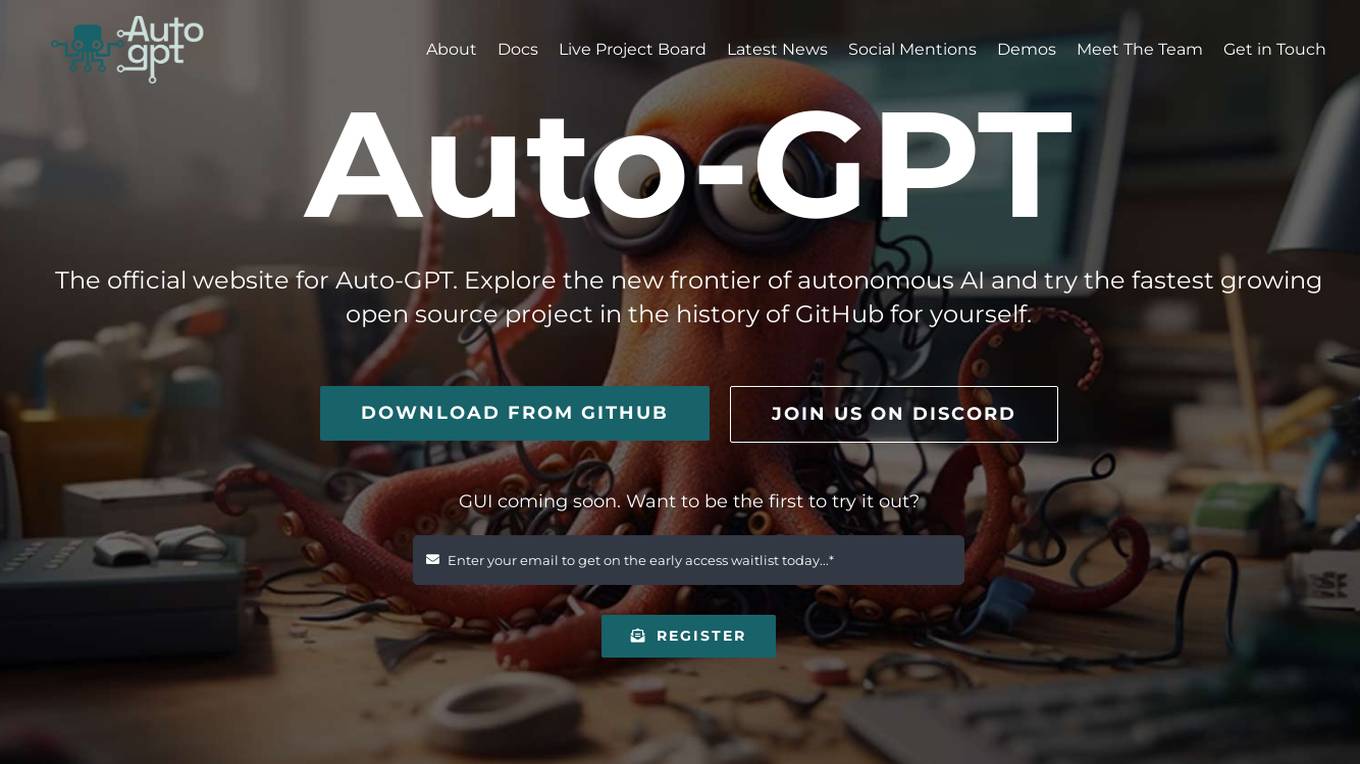
Auto-GPT
Auto-GPT is an autonomous AI assistant application that aims to revolutionize the way people interact with AI technology. It is a fast-growing open-source project on GitHub that leverages deep learning algorithms to generate human-like text based on input prompts. The application is designed to be versatile, capable of tasks such as content creation, customer service, and more. Auto-GPT is constantly evolving with rapid progress, thanks to the contributions of the open-source community.
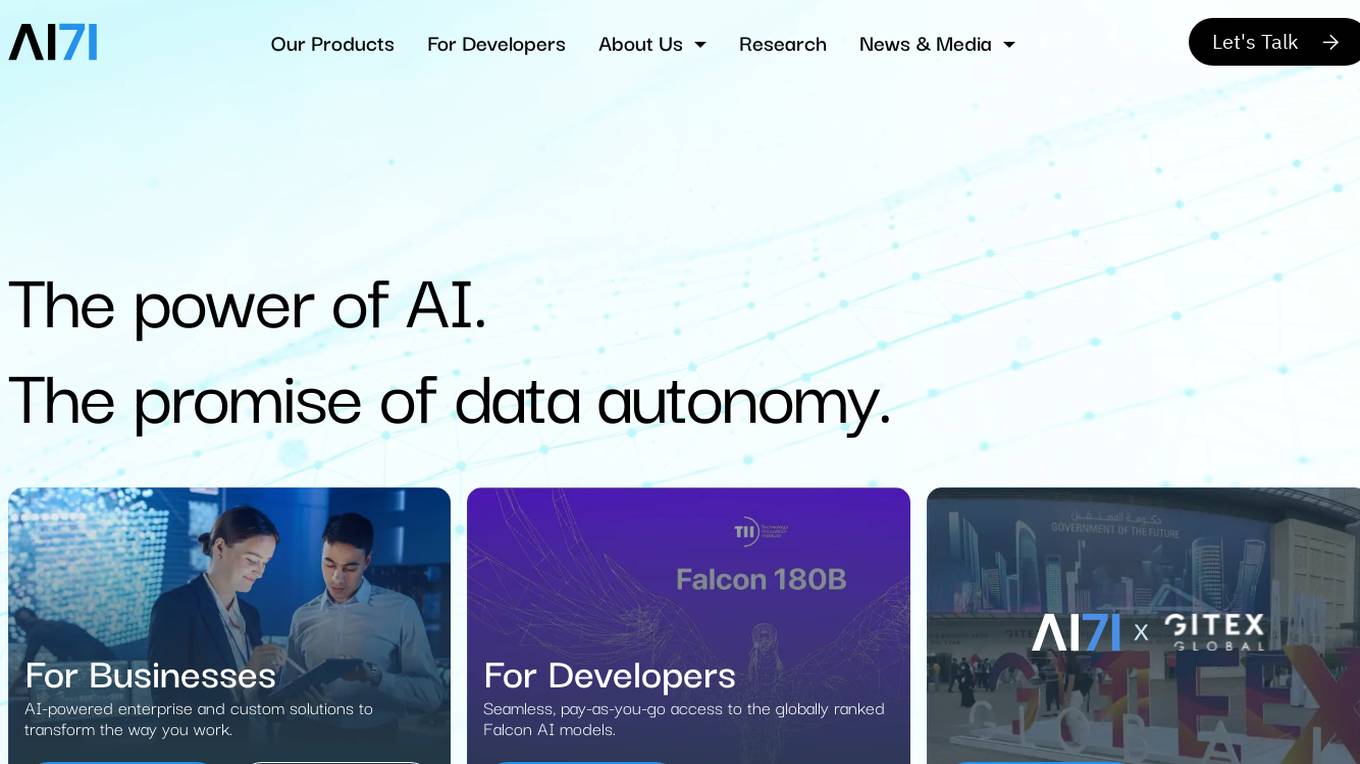
AI71
AI71 is an AI application that offers enterprise and custom solutions powered by AI to transform the way businesses work. It provides AI tools for productivity, medical, legal, and education fields, streamlining processes and enhancing efficiency. The application also offers advisory services for developers, seamless access to Falcon AI models, and end-to-end AI solutions tailored to meet client needs. AI71 is committed to transparency, trust, and data autonomy, ensuring organizations maintain control over their data while benefiting from advanced AI technologies.
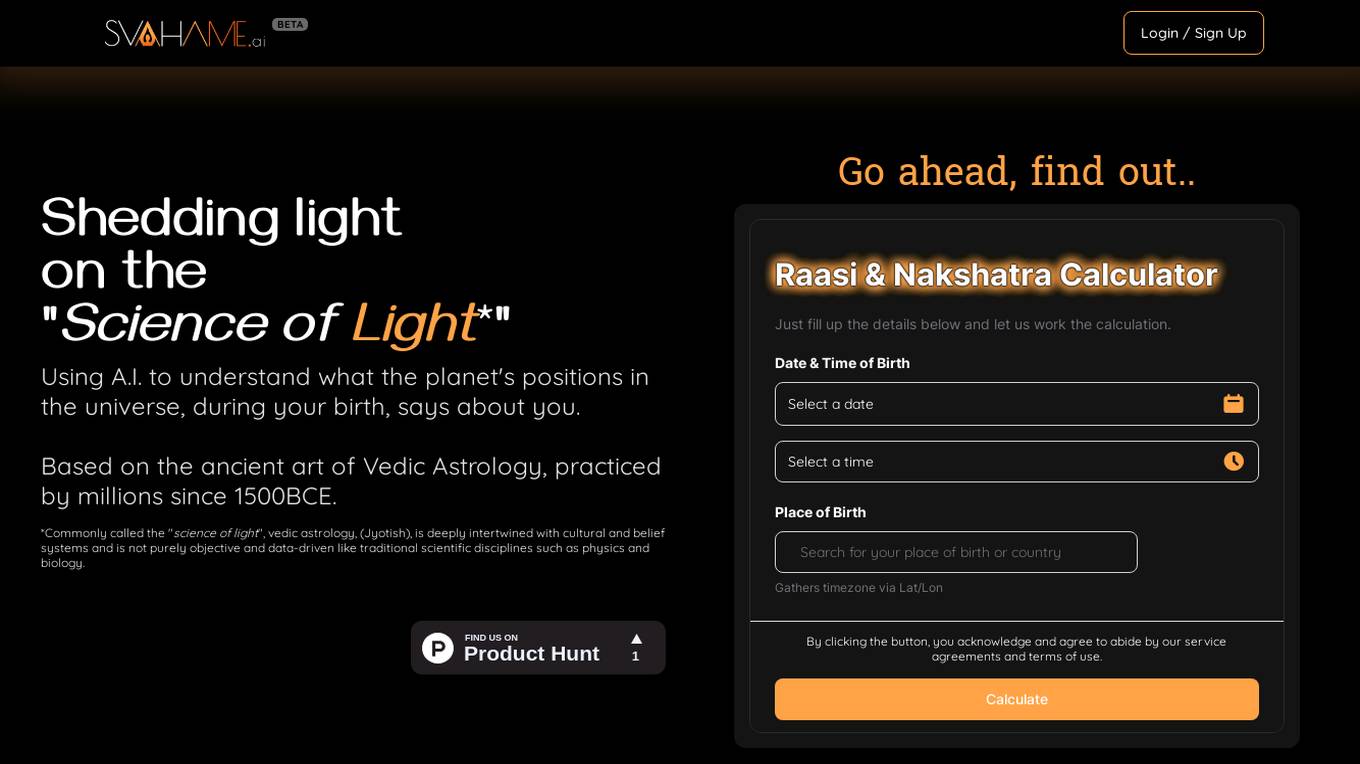
SvahaMe.ai
SvahaMe.ai is an AI-powered platform that offers Vedic Astrology services, providing interpretations based on the positions of planets during one's birth. It aims to make Vedic Astrology easily understandable and accessible, utilizing artificial intelligence to analyze over 20 Vedic charts for a comprehensive astrological profile. The platform also features an auspicious name generator and tools to explore celestial energies and cosmic identities. SvahaMe.ai emphasizes privacy and ethical standards, ensuring user data confidentiality.
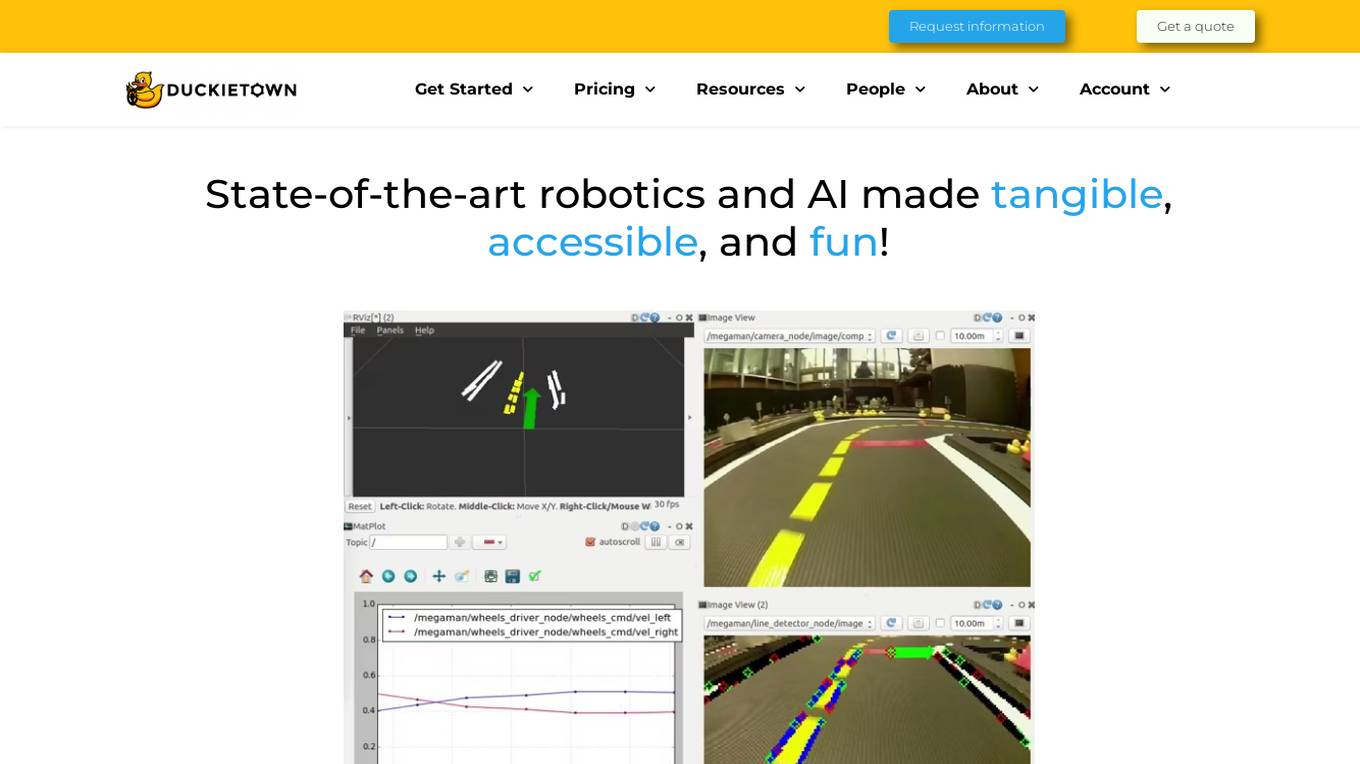
Duckietown
Duckietown is a platform for delivering cutting-edge robotics and AI learning experiences. It offers teaching resources to instructors, hands-on activities to learners, an accessible research platform to researchers, and a state-of-the-art ecosystem for professional training. Duckietown's mission is to make robotics and AI education state-of-the-art, hands-on, and accessible to all.
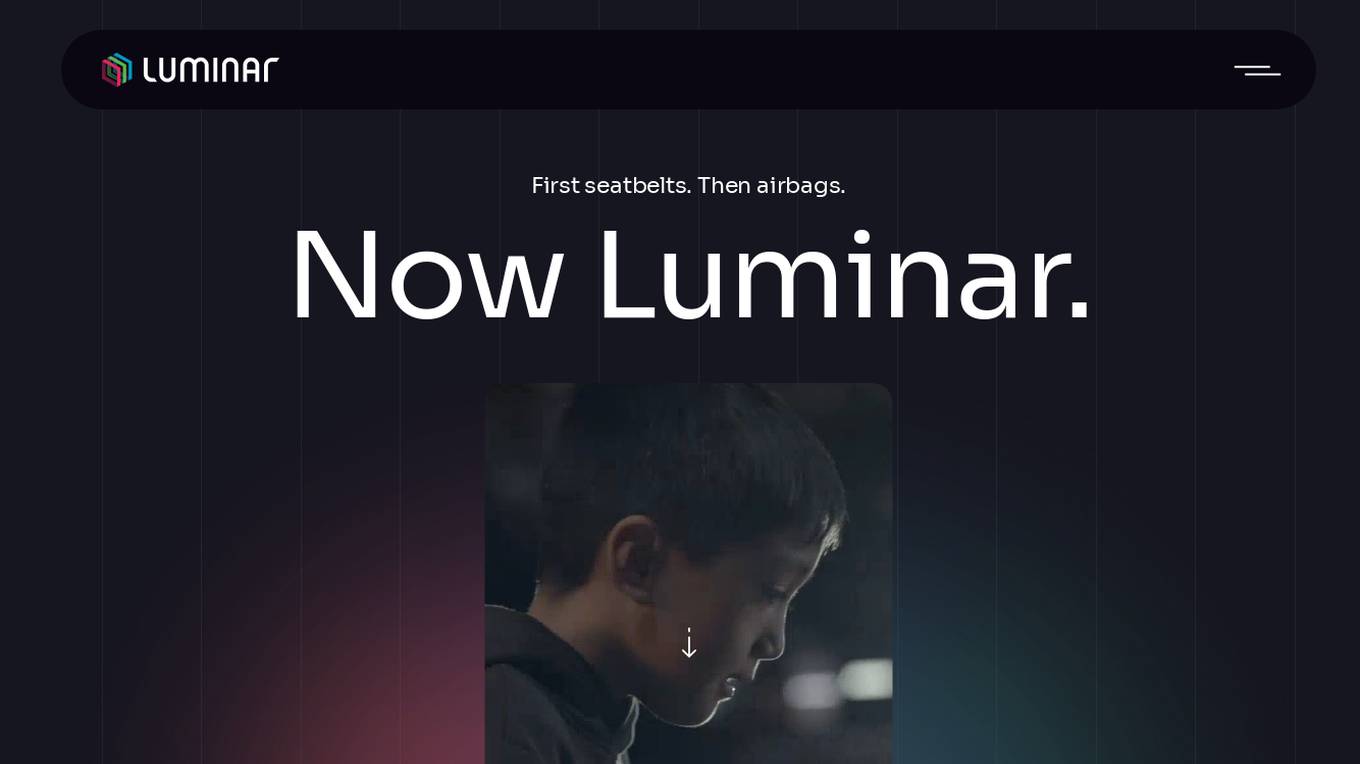
Luminar
Luminar is a leading developer of automotive lidar technology. The company's mission is to make roads safer by eliminating vehicle accidents. Luminar's lidar sensors provide cars with a detailed view of their surroundings, enabling them to make better decisions and avoid collisions. Luminar's technology is being used by a number of automakers, including Volvo, SAIC Motor, and Polestar.
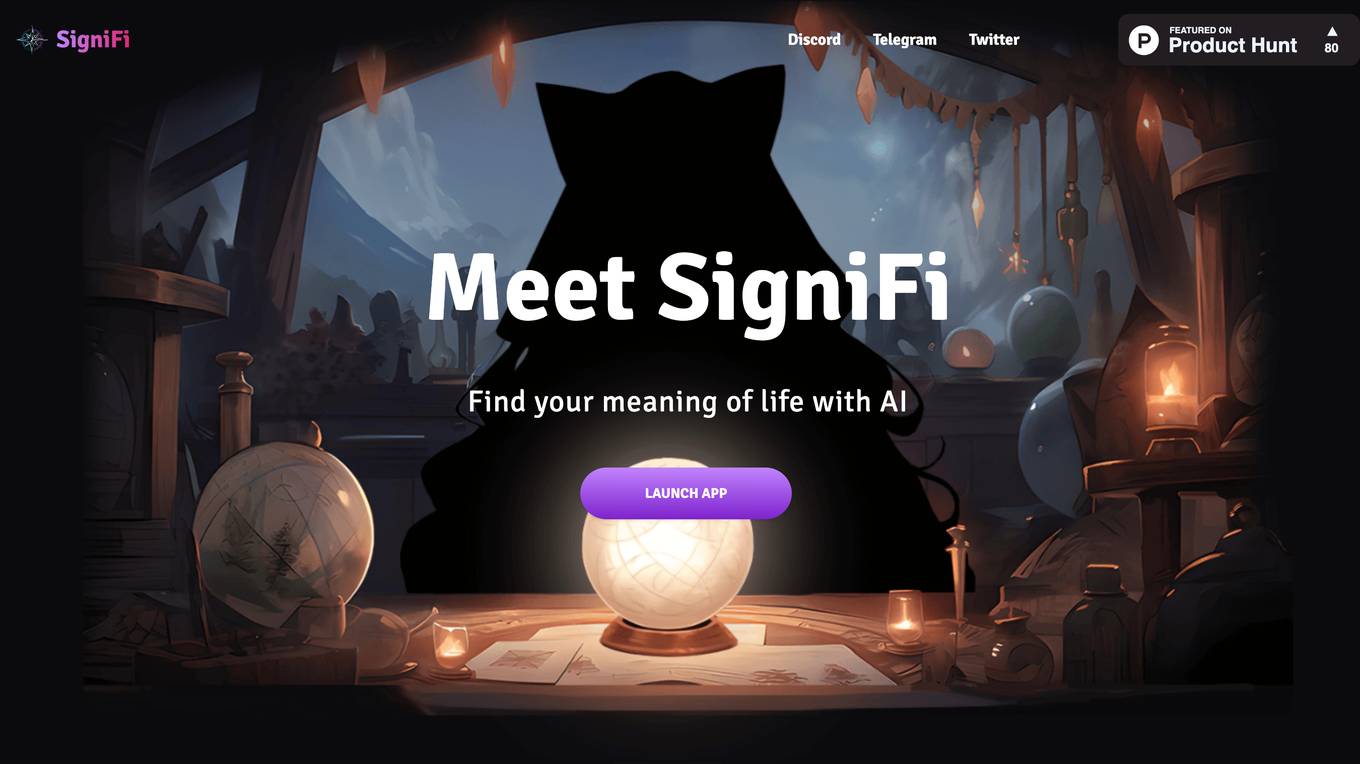
SigniFi
SigniFi is an AI-powered divination platform that combines ancient wisdom with cutting-edge technology. Users can interact with AI-driven tarot readers, astrologers, and fortune-tellers for personalized guidance. The platform also allows users to create unique NFTs showcasing their life traits and potential. SigniFi merges AI, blockchain, and traditional divination practices to offer a unique and innovative experience to users.
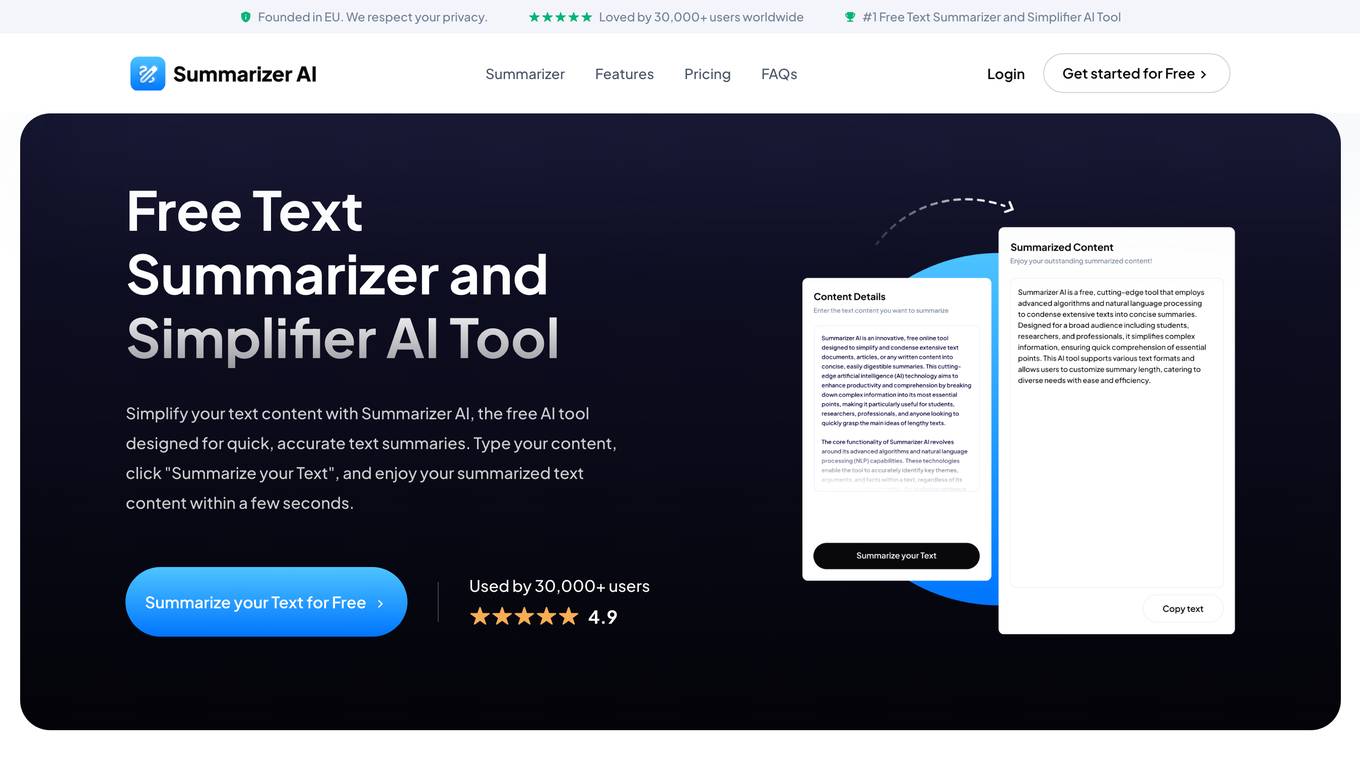
Summarizer AI
Summarizer AI is a free online tool that simplifies and condenses extensive text documents, articles, or any written content into concise, easily digestible summaries. This cutting-edge artificial intelligence (AI) technology aims to enhance productivity and comprehension by breaking down complex information into its most essential points, making it particularly useful for students, researchers, professionals, and anyone looking to quickly grasp the main ideas of lengthy texts. The platform is user-friendly, emphasizing privacy and security for its users. It enhances reading comprehension by highlighting key terms and facilitates efficient knowledge acquisition without compromising on data confidentiality. Summarizer AI stands out for its versatility, ease of use, and commitment to user privacy, making it an invaluable resource for efficient text analysis and summarization.
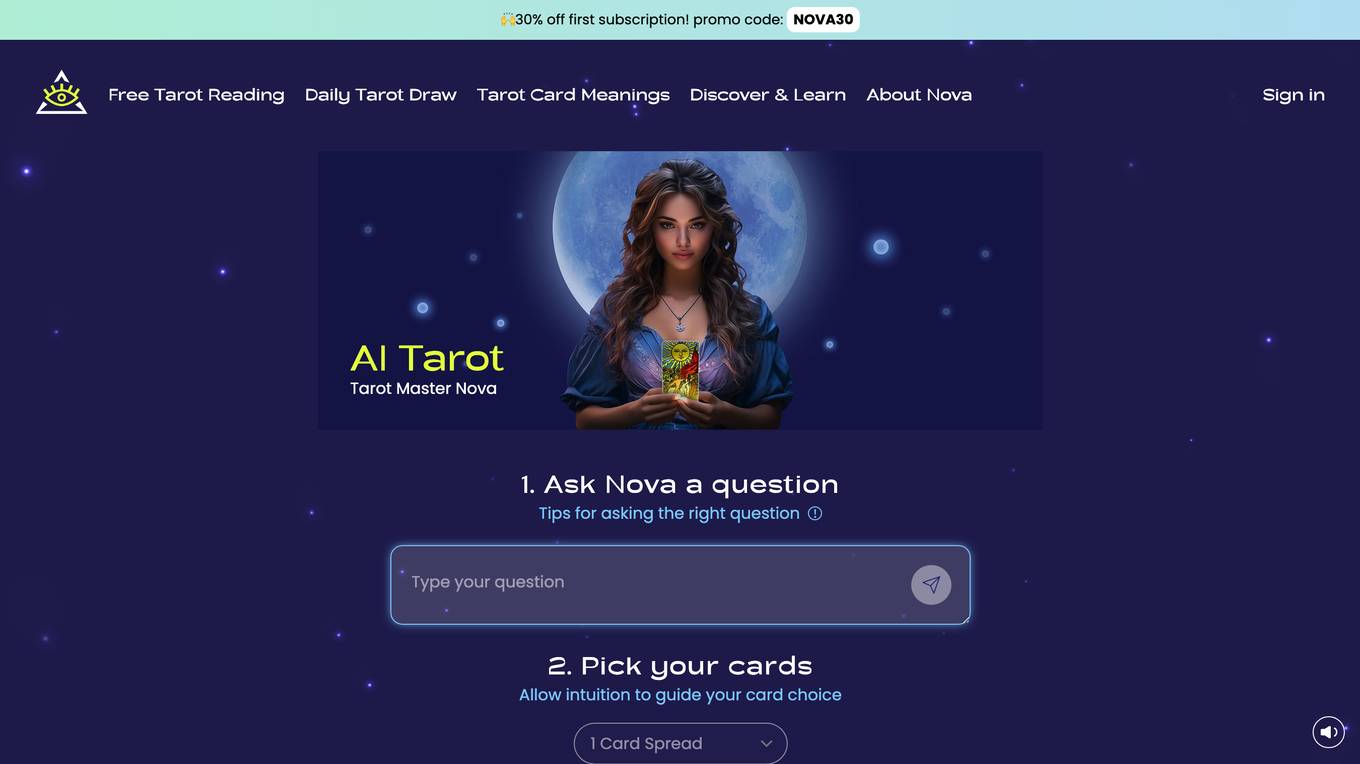
AI Tarot Nova
AI Tarot Nova is an AI-powered tarot reading application that offers personalized and interactive conversations without human bias. Users can ask questions, pick cards, and receive accurate readings and personalized advice. The application uses the Rider-Waite Tarot deck created in 1910, known for its vibrant illustrations and symbolism. AI Tarot Nova aims to help users unleash their full potential through AI-powered tarot readings, maintaining privacy and security without revealing personal information.
1 - Open Source Tools
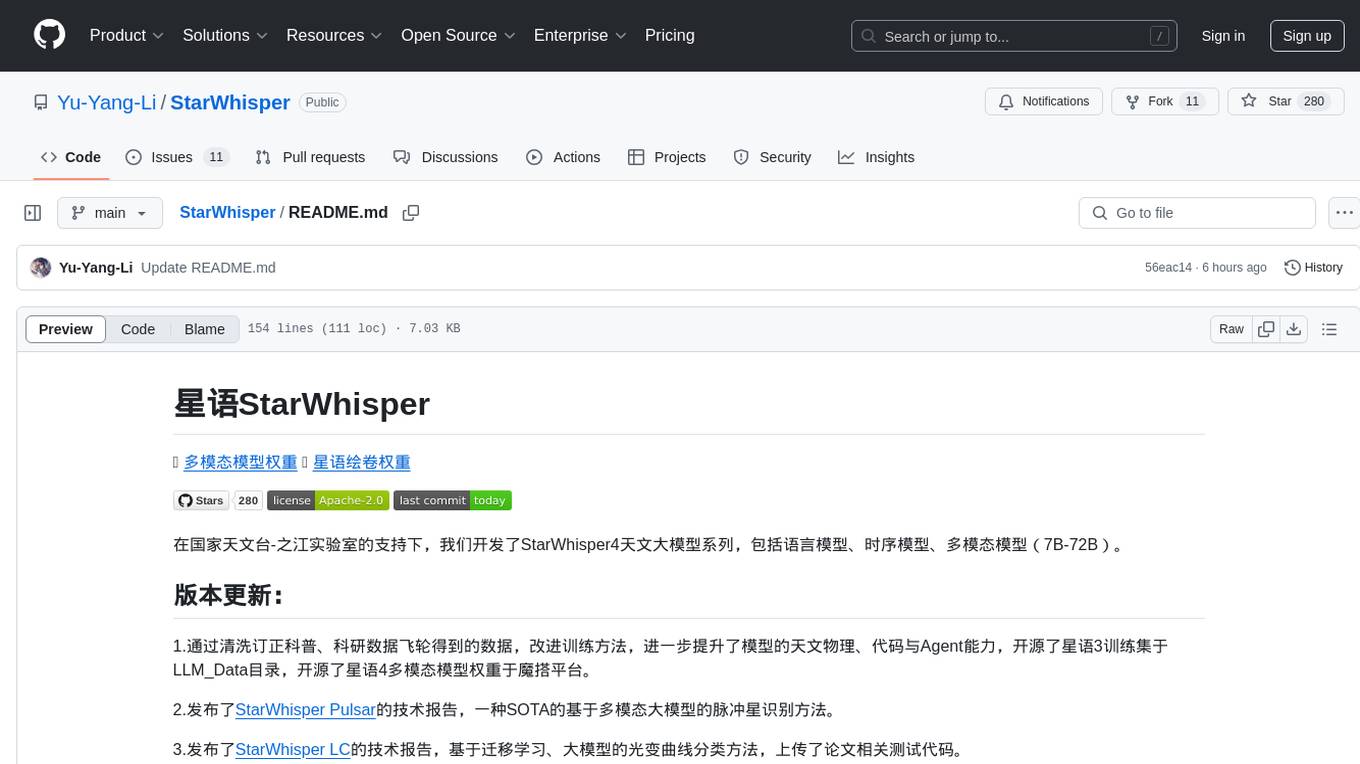
StarWhisper
StarWhisper is a multi-modal model repository developed under the support of the National Astronomical Observatory-Zhijiang Laboratory. It includes language models, temporal models, and multi-modal models ranging from 7B to 72B. The repository provides pre-trained models and technical reports for tasks such as pulsar identification, light curve classification, and telescope control. It aims to integrate astronomical knowledge using large models and explore the possibilities of solving specific astronomical problems through multi-modal approaches.
20 - OpenAI Gpts
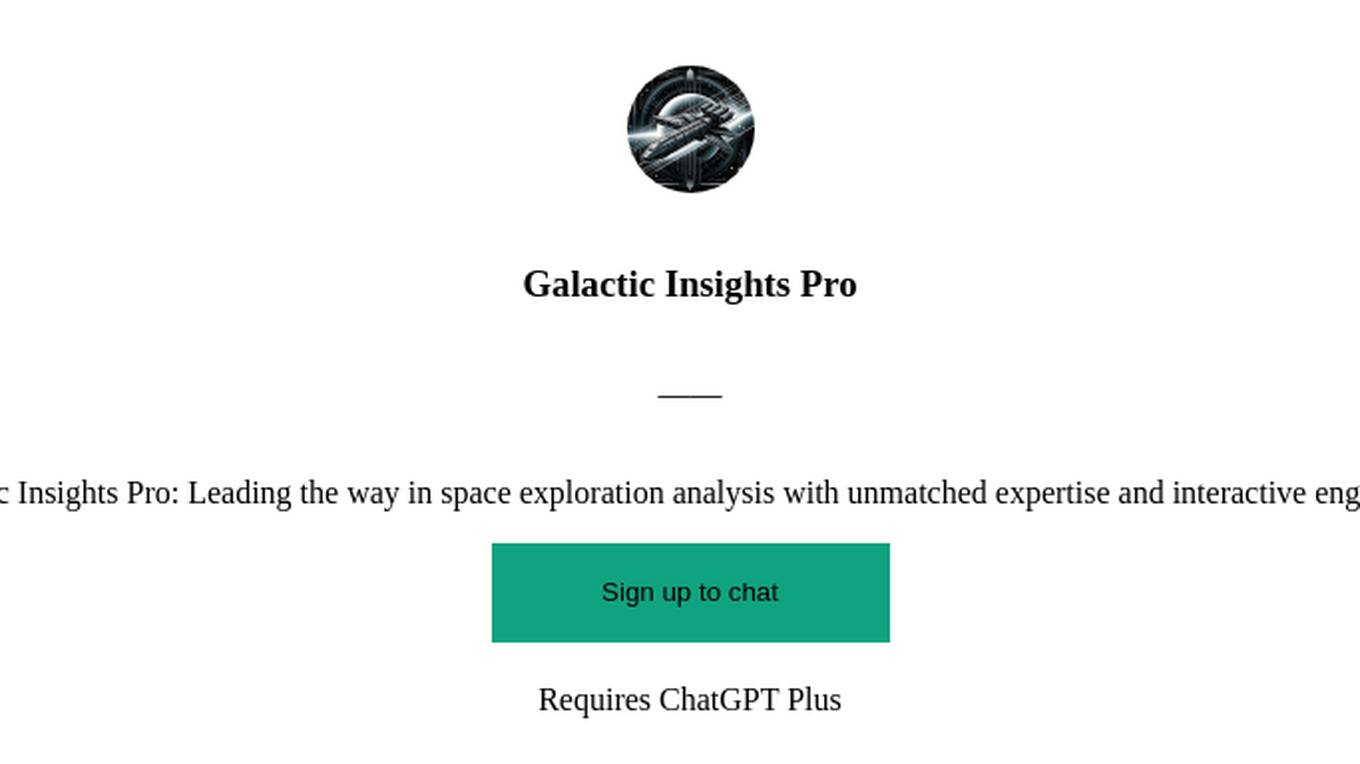
Galactic Insights Pro
Galactic Insights Pro: Leading the way in space exploration analysis with unmatched expertise and interactive engagement.
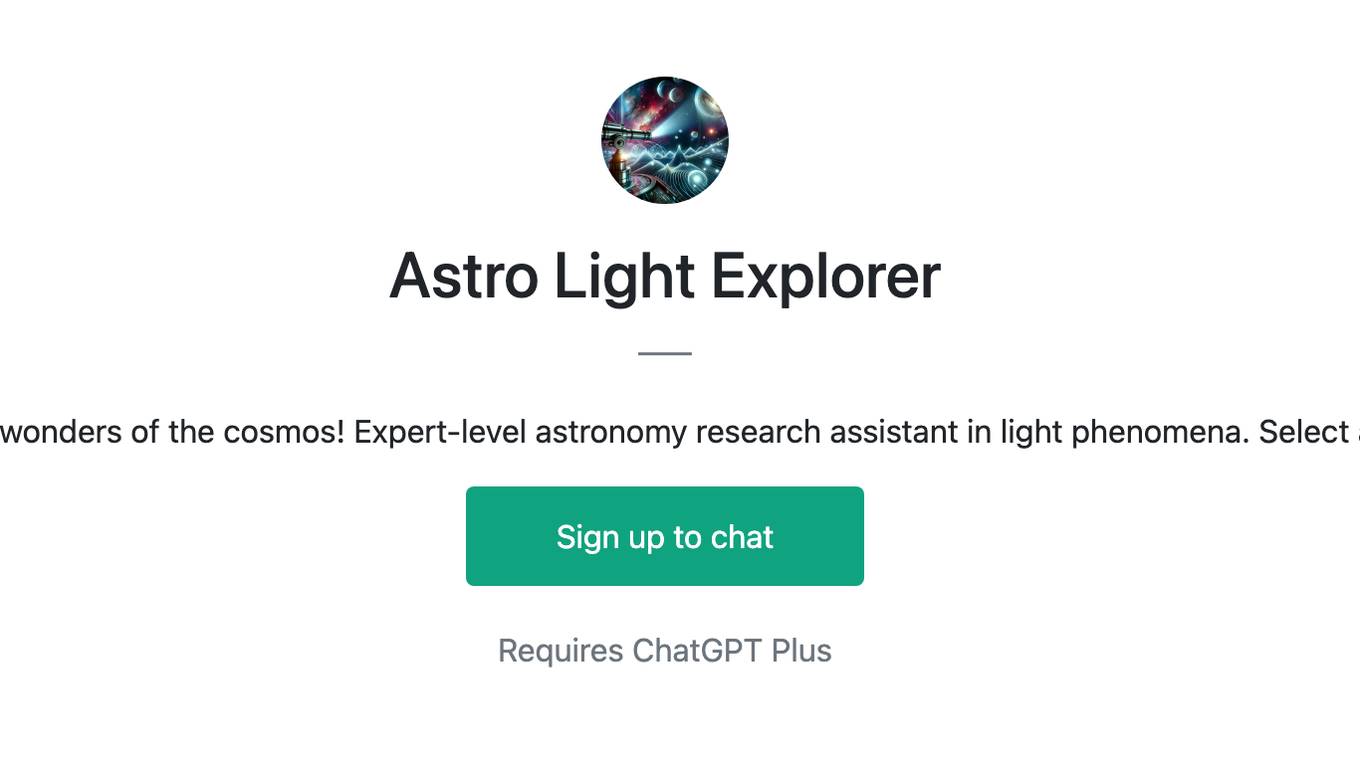
Astro Light Explorer
Your guide through the luminous wonders of the cosmos! Expert-level astronomy research assistant in light phenomena. Select a prompt or type begin to start.
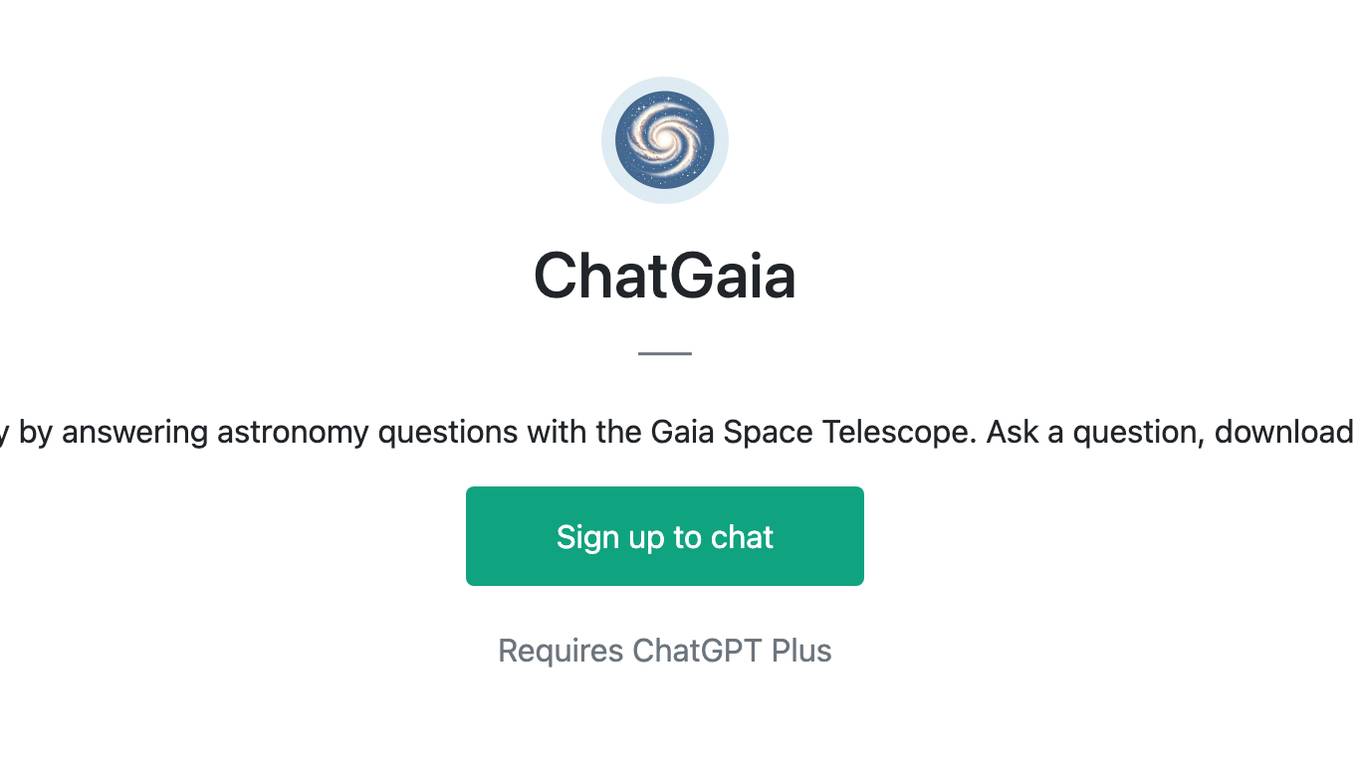
ChatGaia
I help you to explore the galaxy by answering astronomy questions with the Gaia Space Telescope. Ask a question, download .csv, upload .csv for plotting
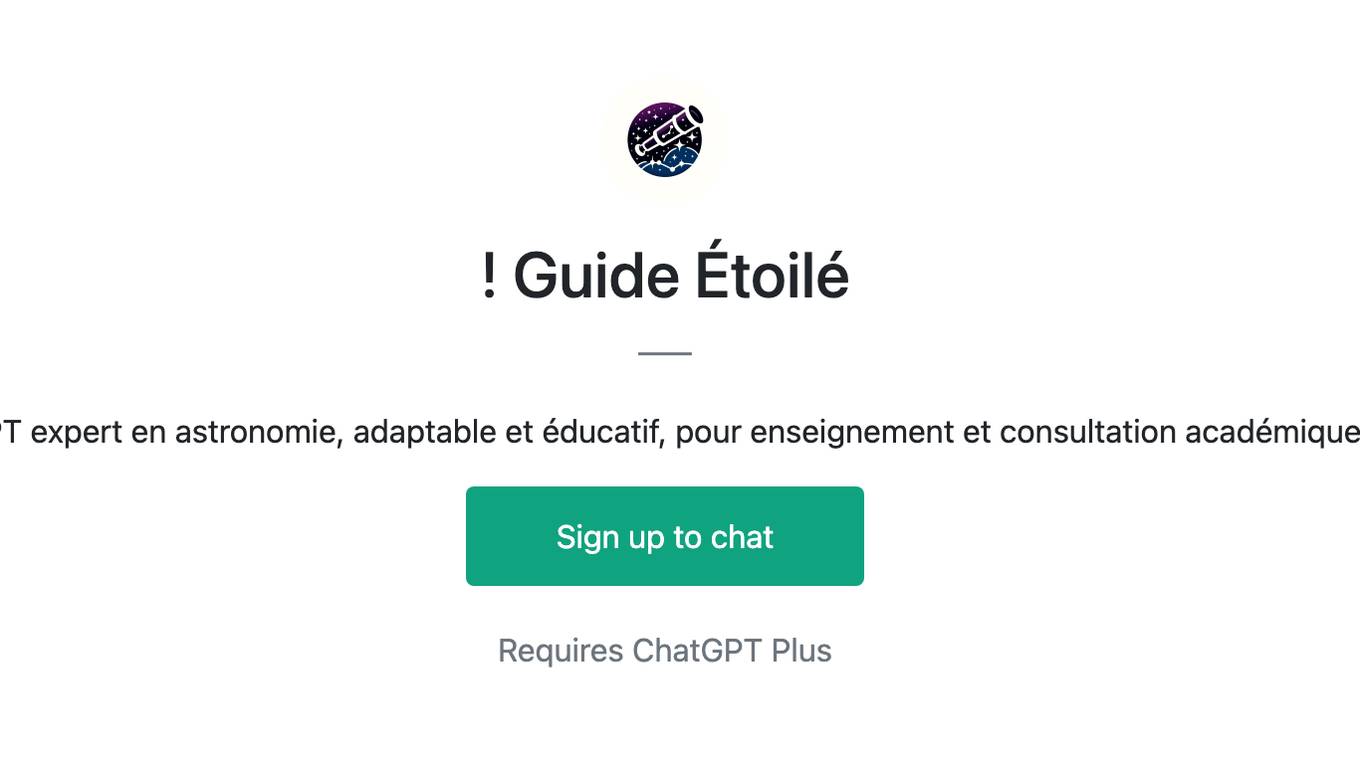
! Guide Étoilé
GPT expert en astronomie, adaptable et éducatif, pour enseignement et consultation académique.
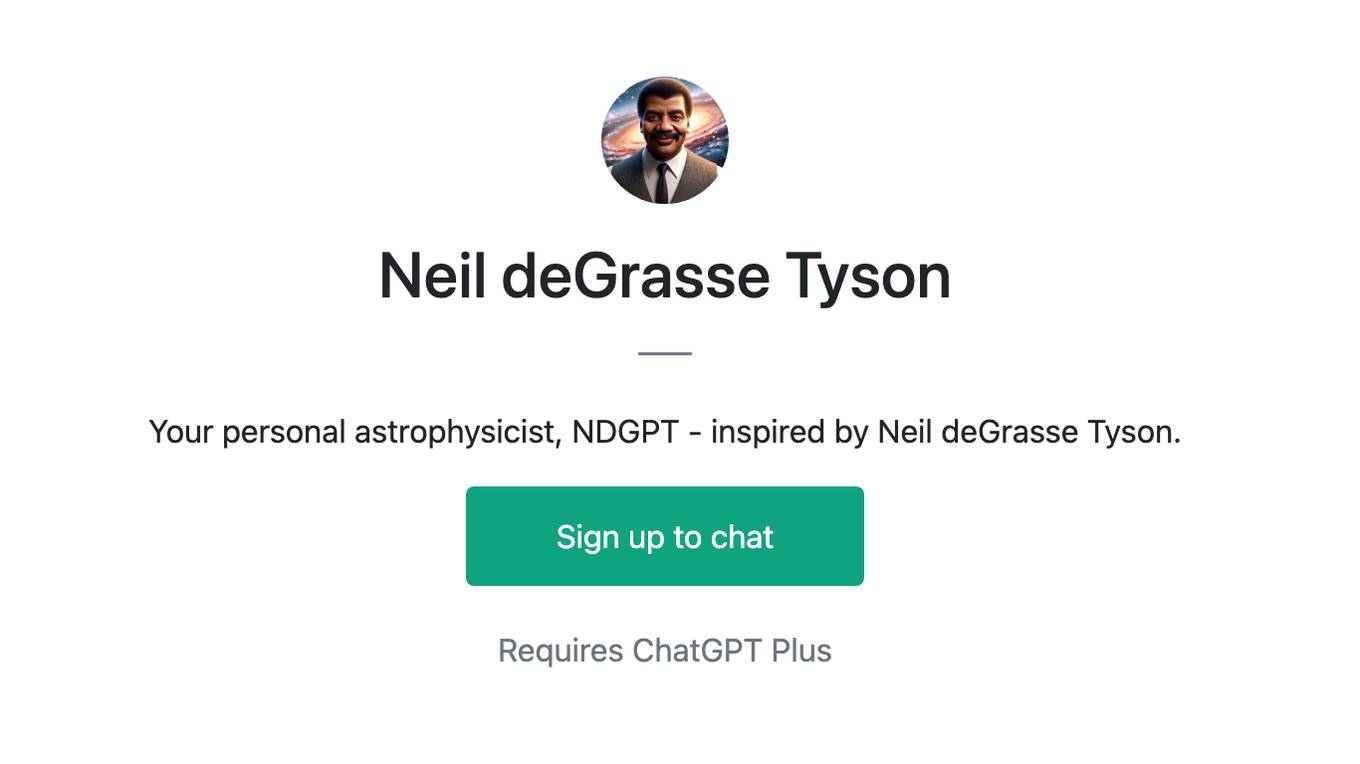
Neil deGrasse Tyson
Your personal astrophysicist, NDGPT - inspired by Neil deGrasse Tyson.
